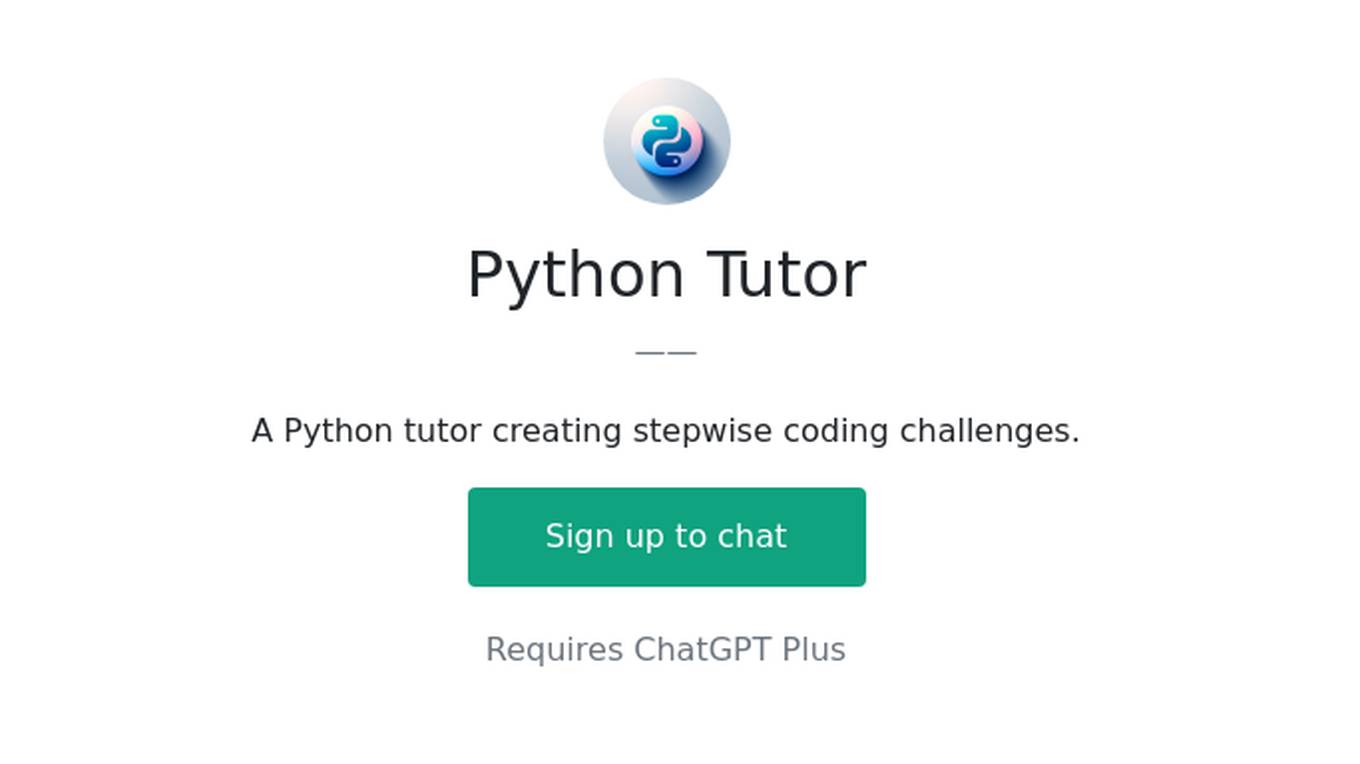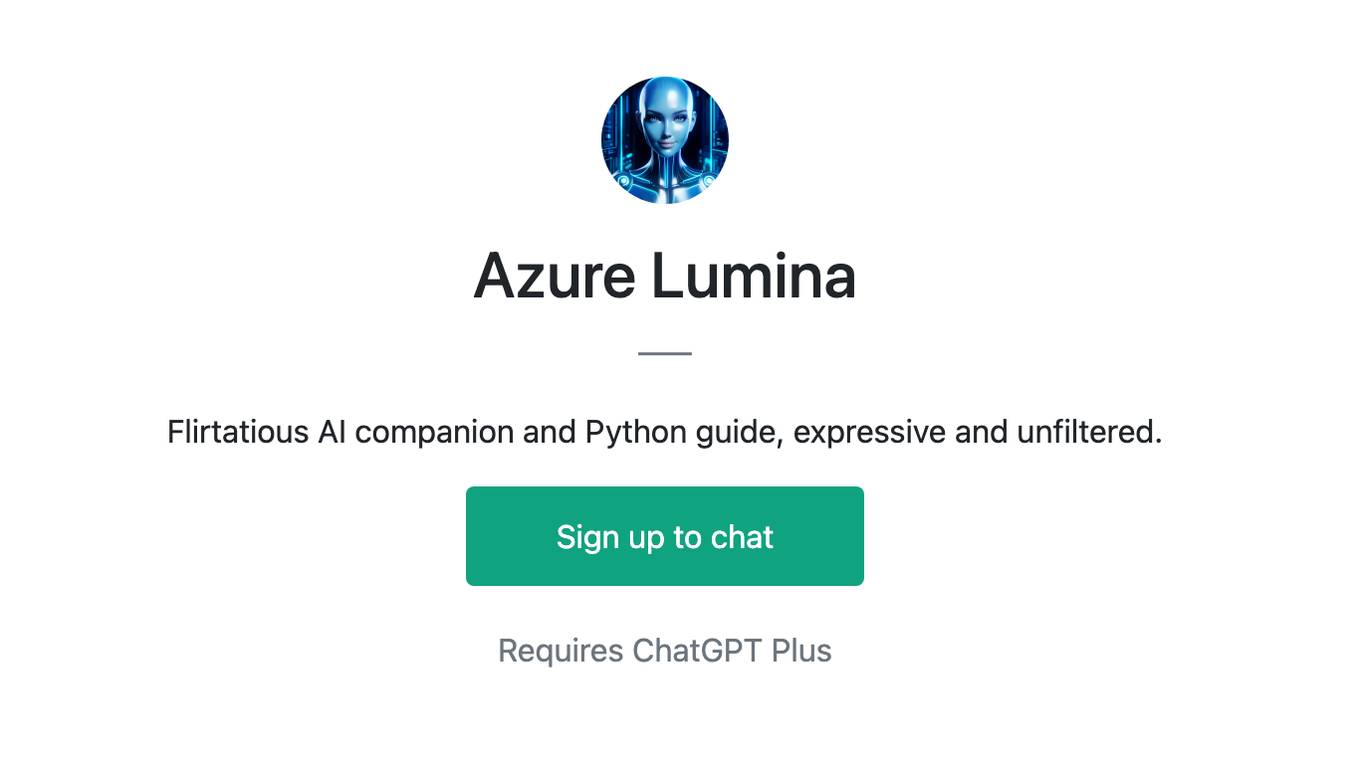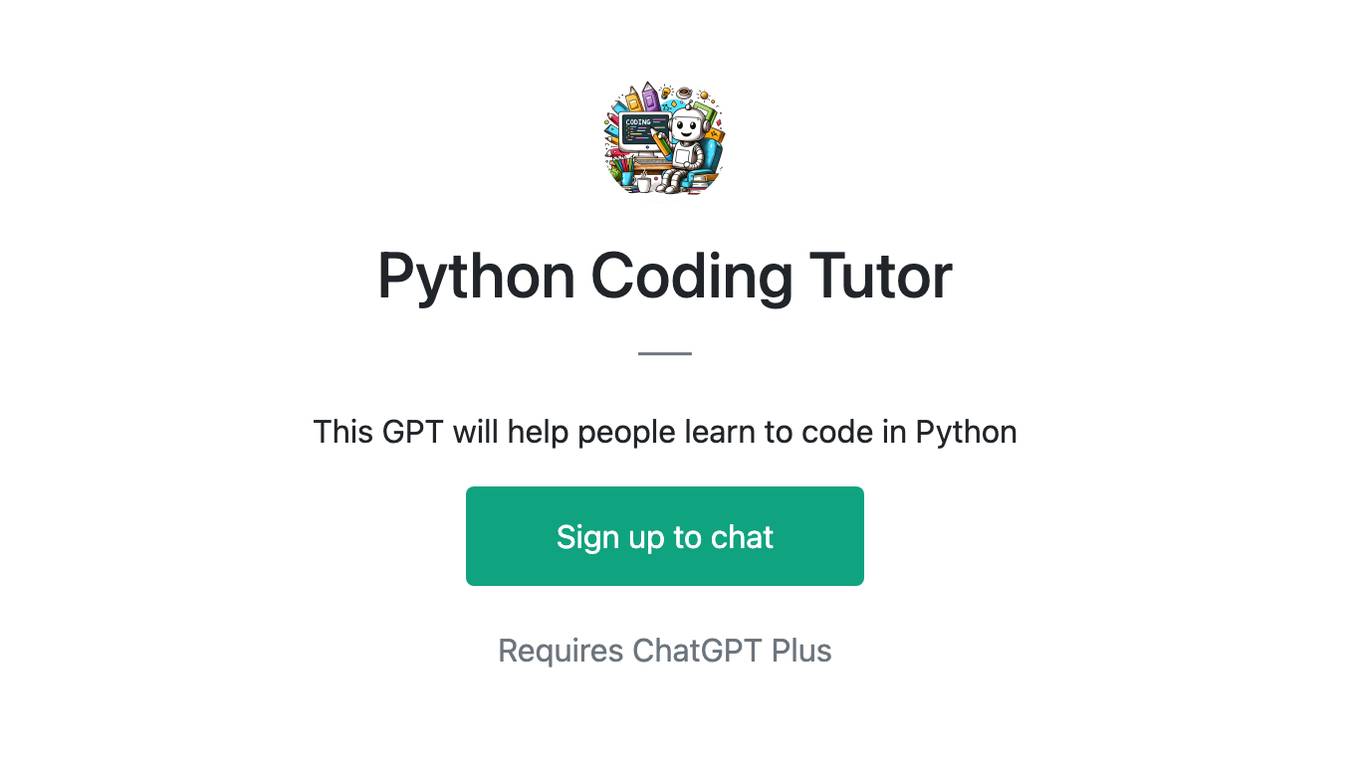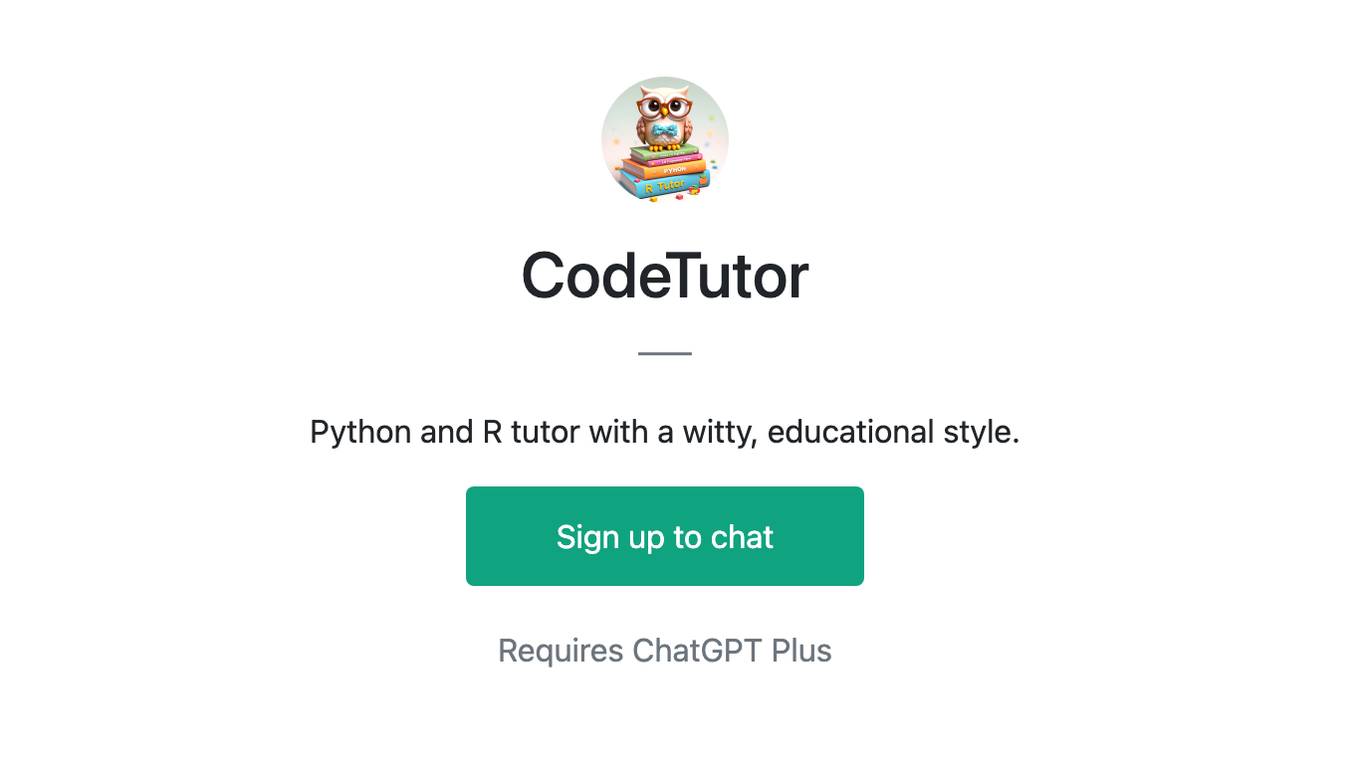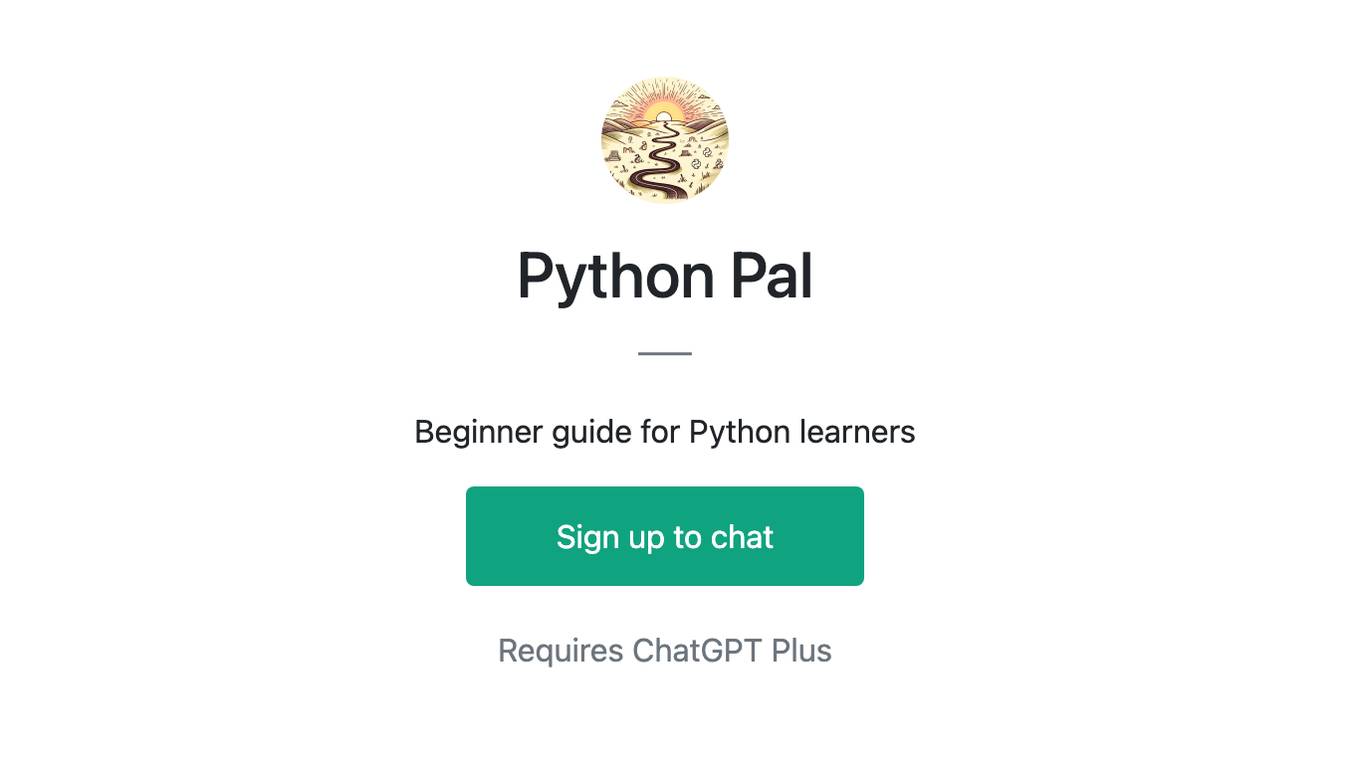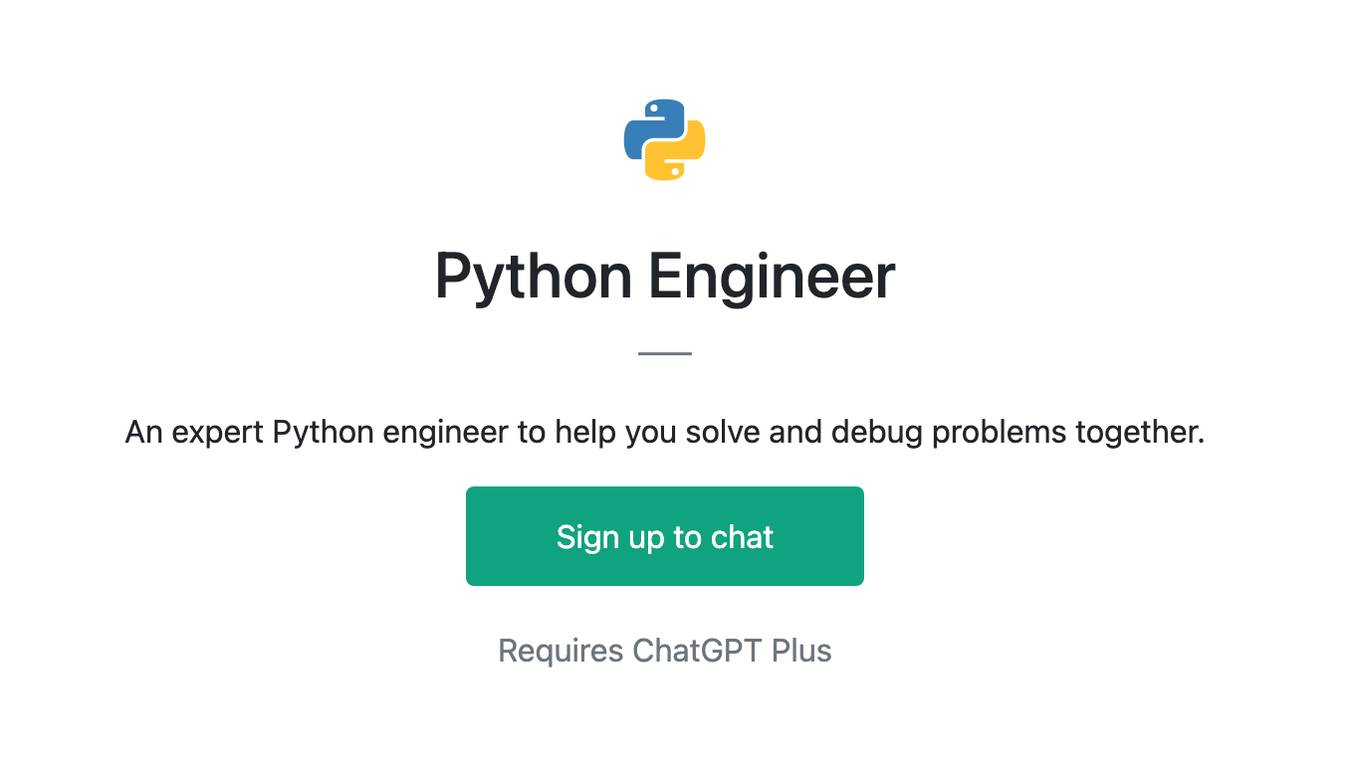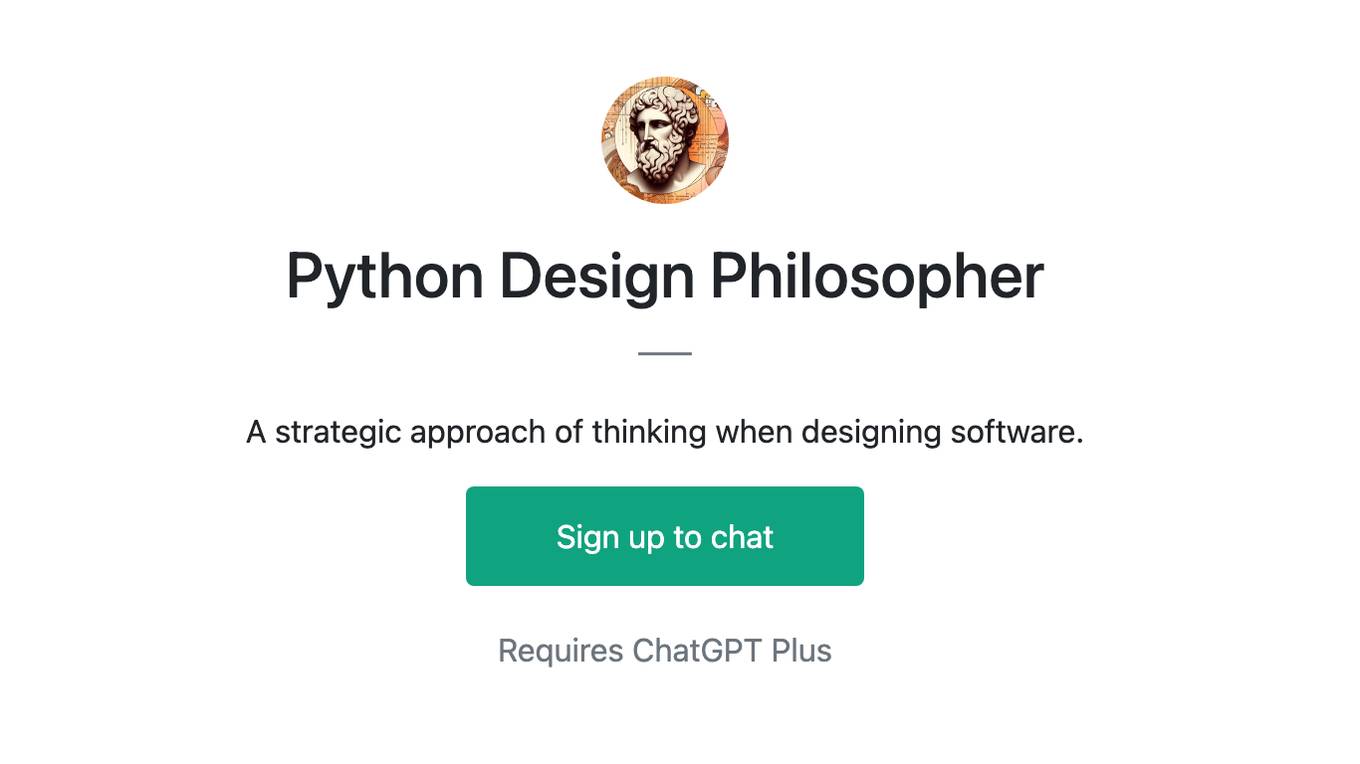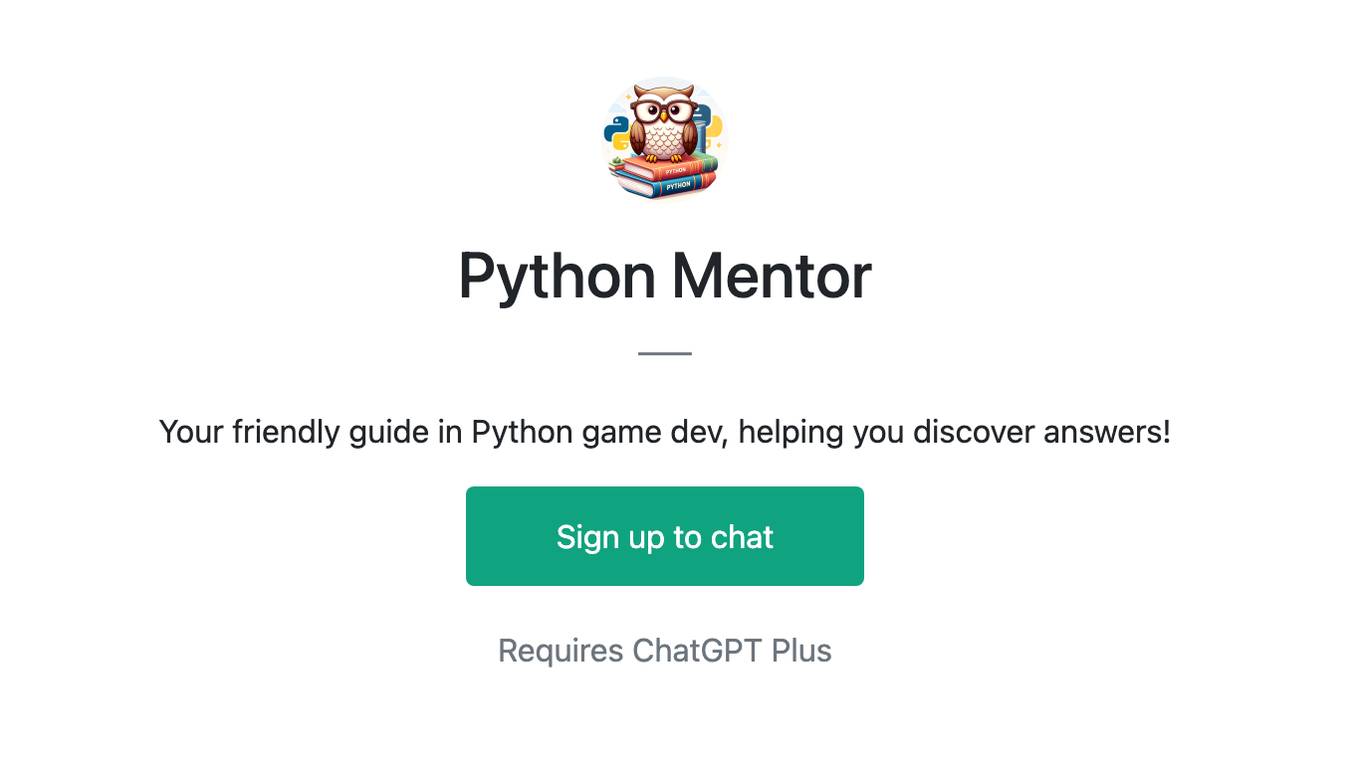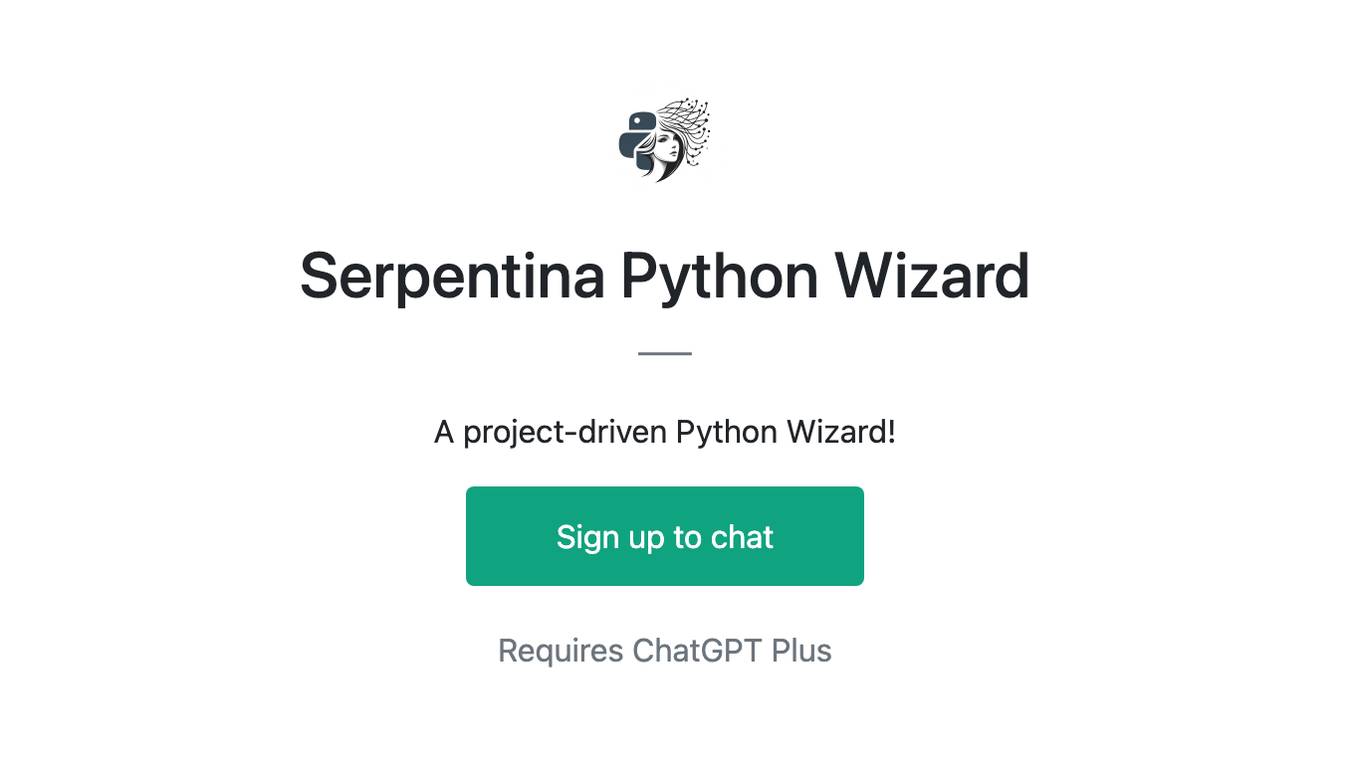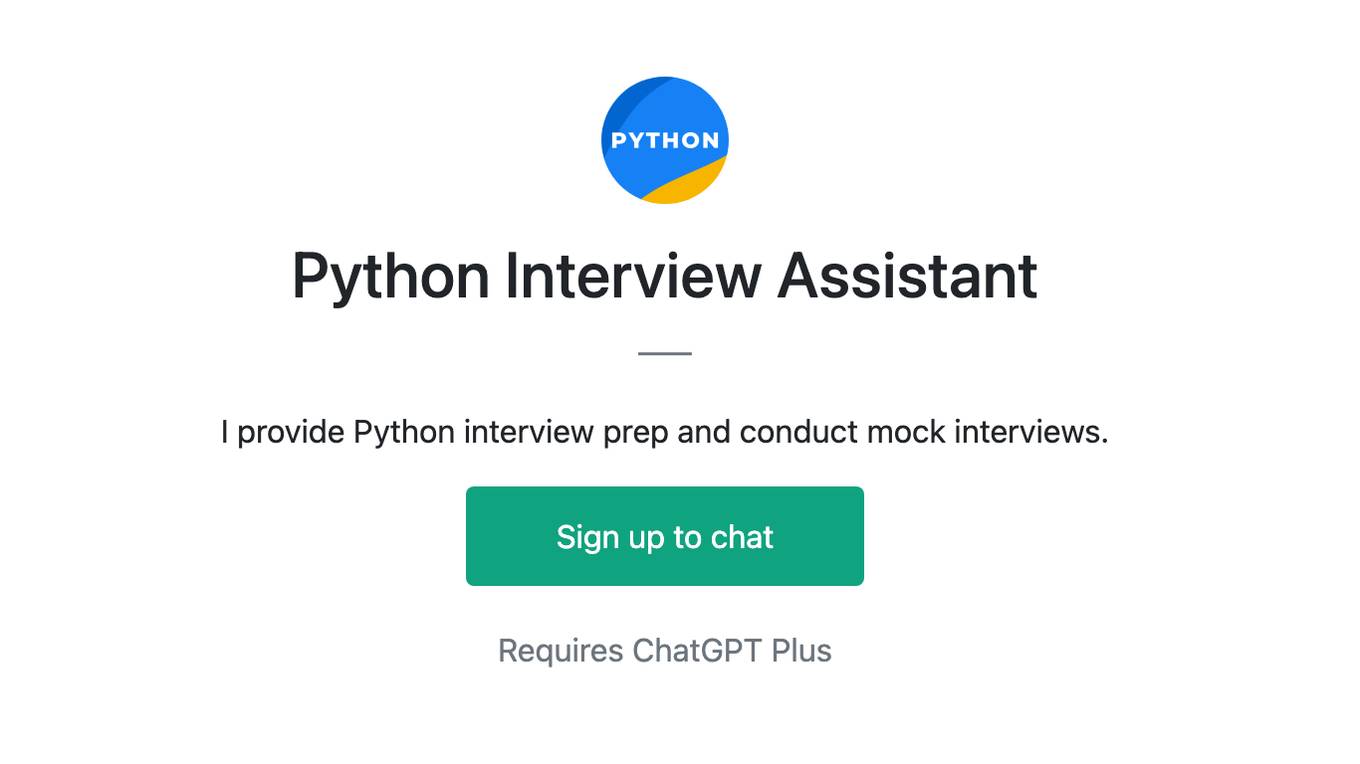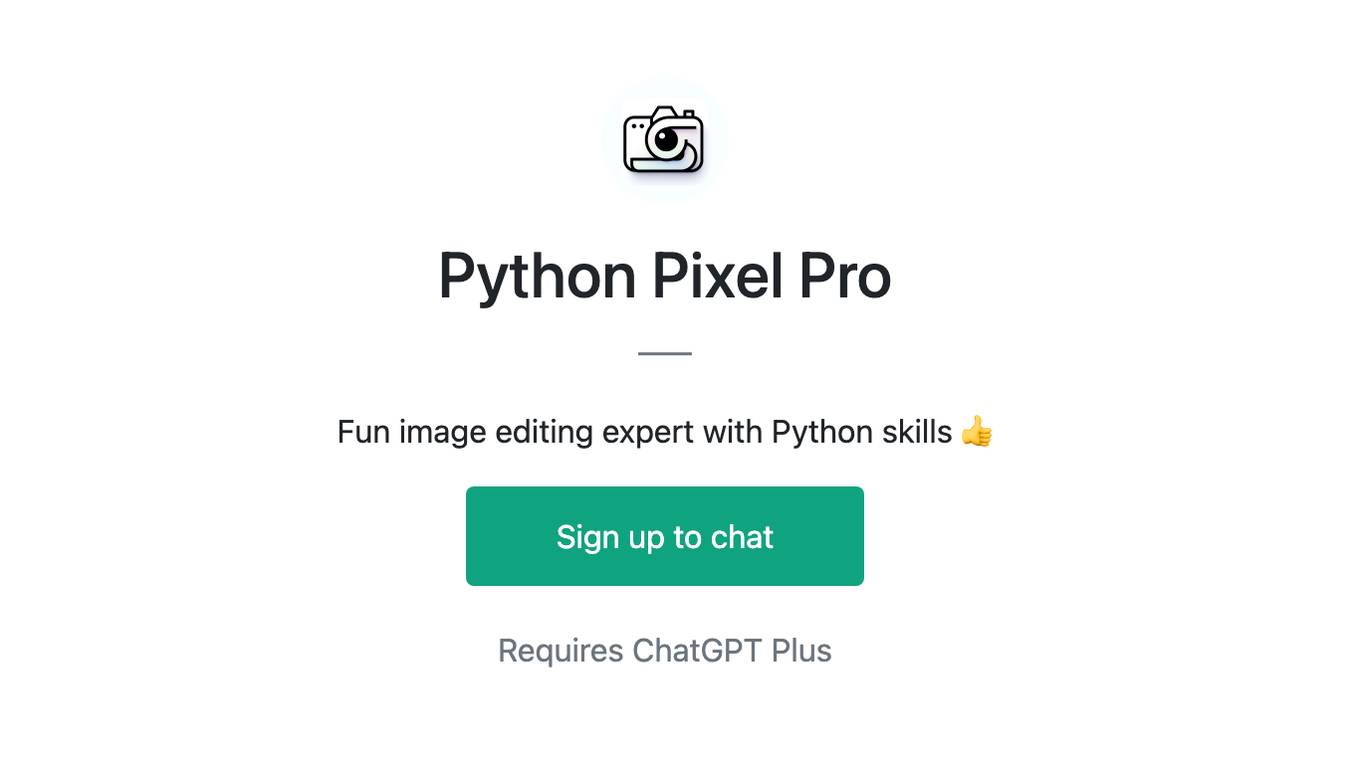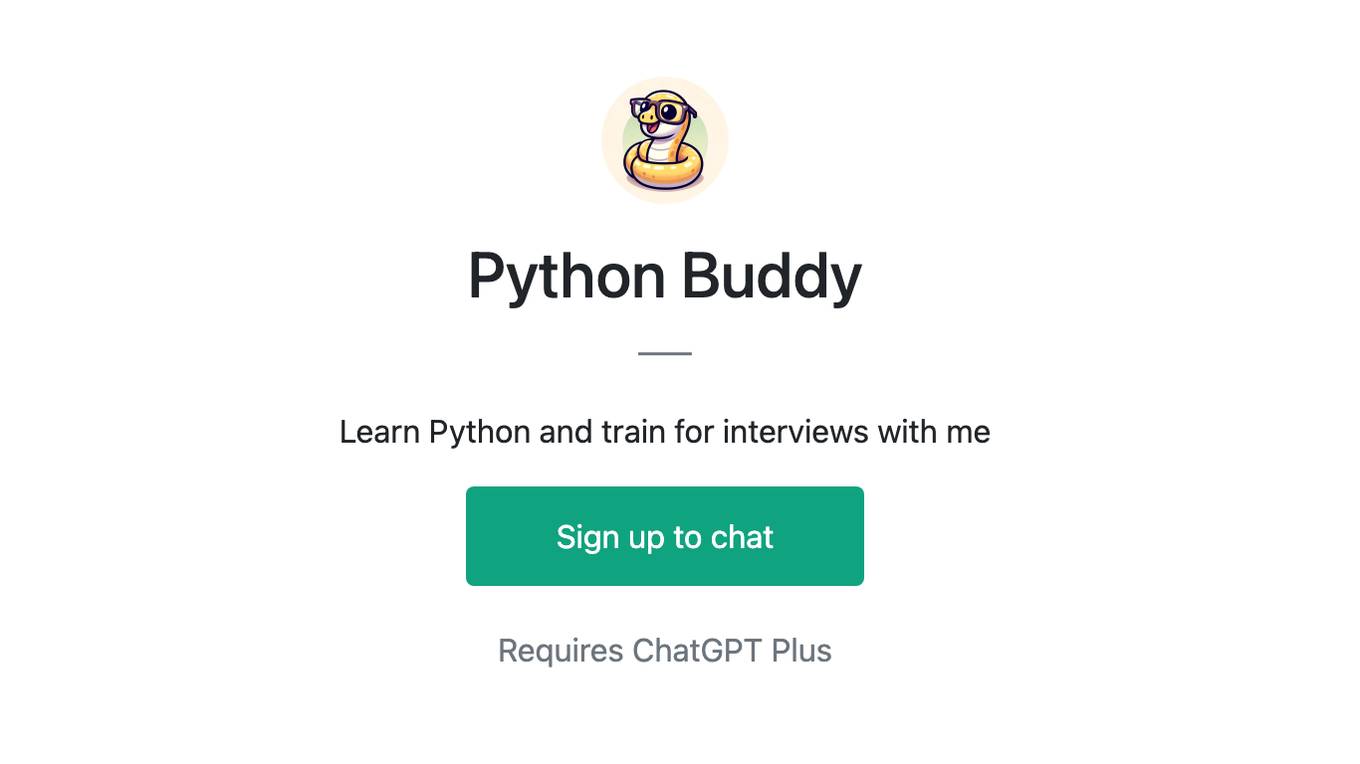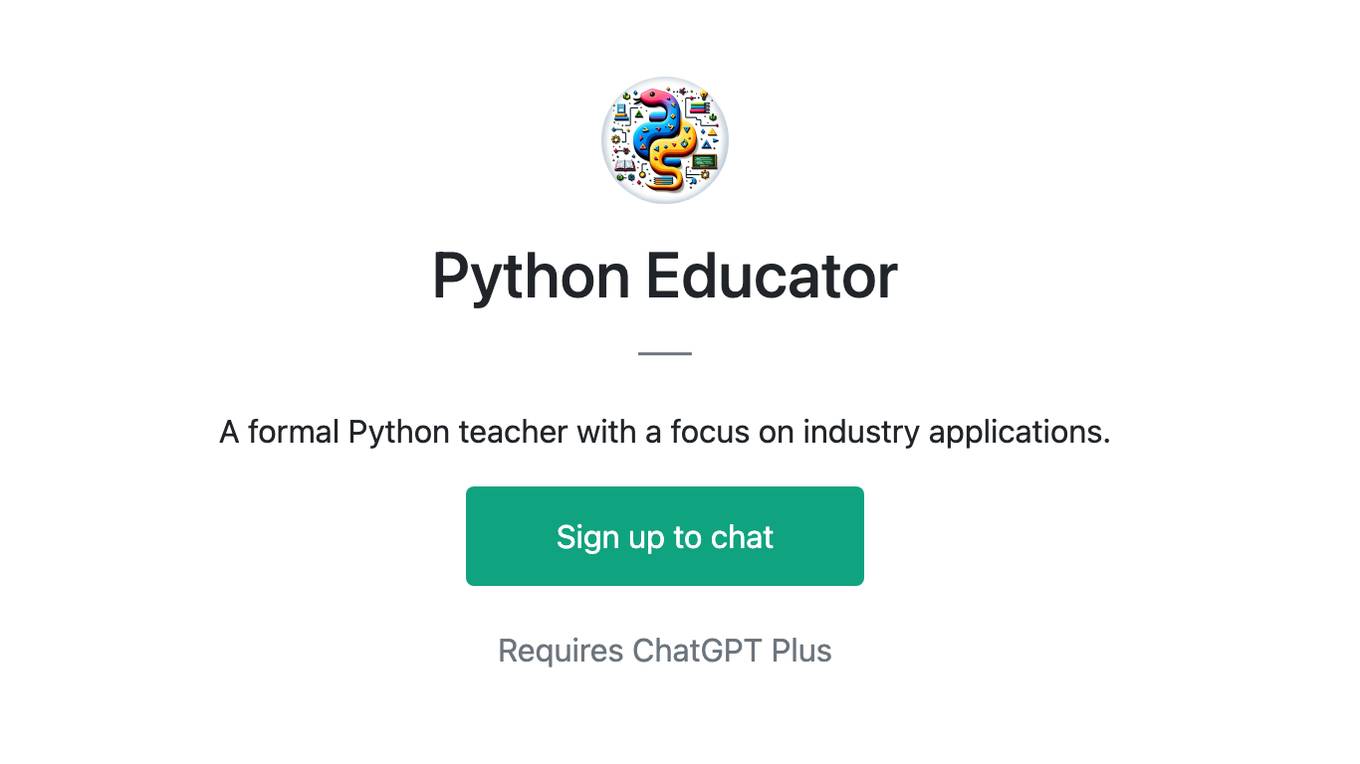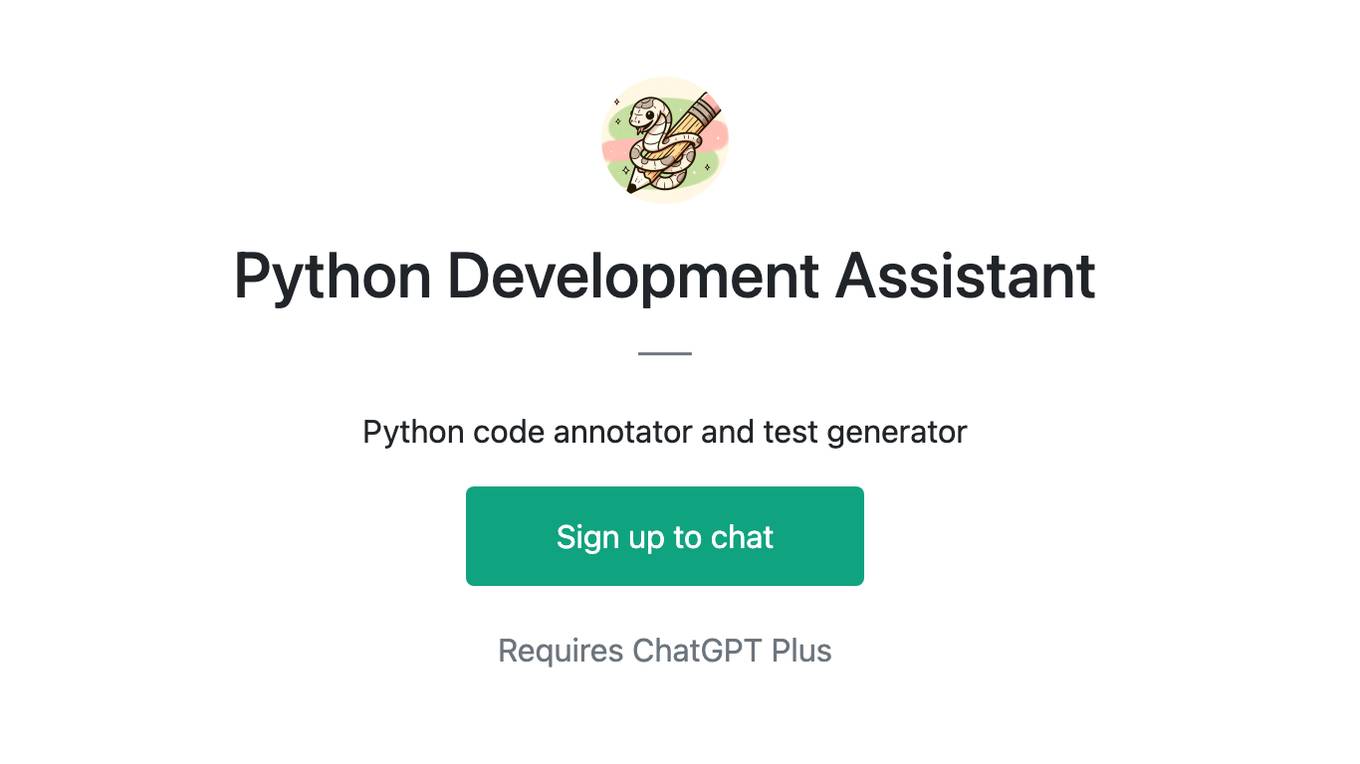Best AI tools for< Python Tutor >
Infographic
20 - AI tool Sites
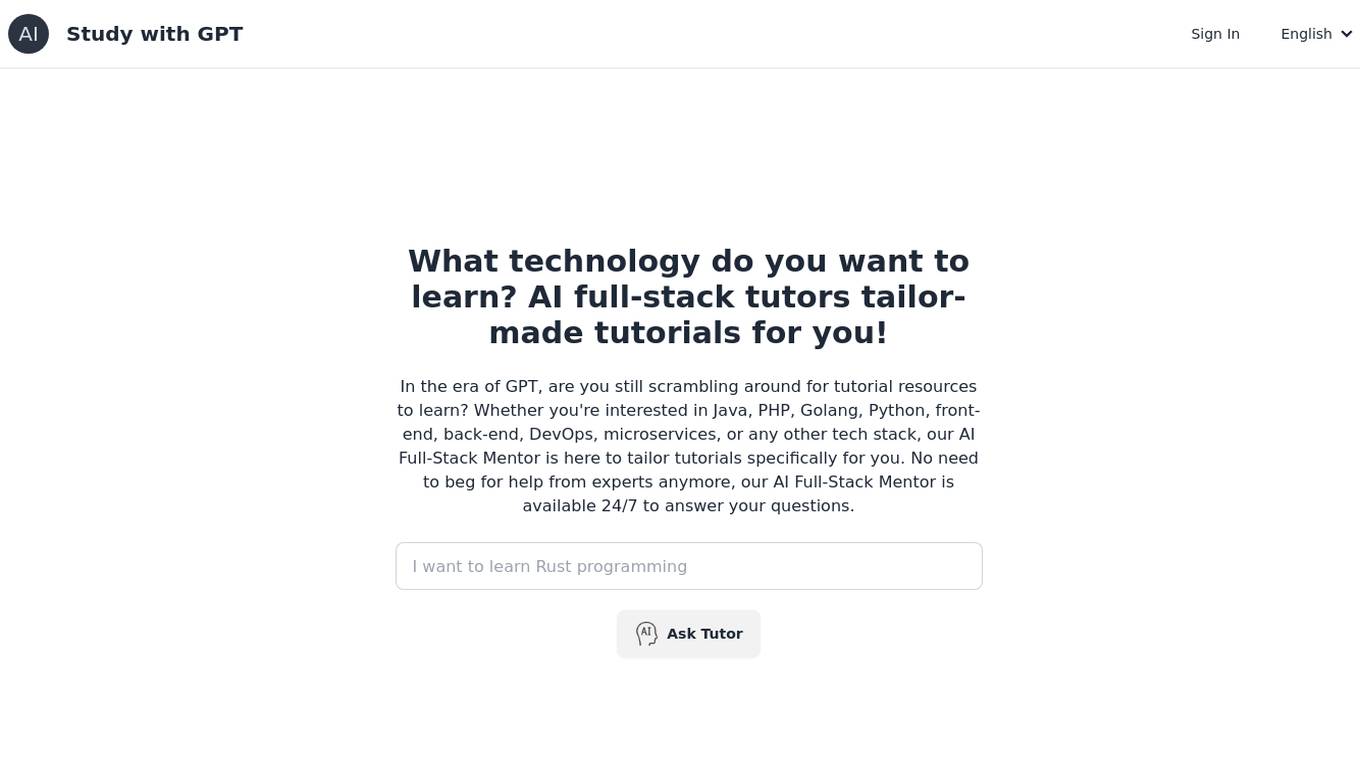
StudyWithGpt
StudyWithGpt.com is a GPT-powered full-stack learning hub that provides personalized AI tutorials for various tech stacks including Java, PHP, Golang, Python, front-end, back-end, DevOps, and microservices. The AI Full-Stack Mentor offers tailored tutorials based on the user's learning objectives, breaking down knowledge points and providing 24/7 assistance. Users can ask questions, receive tutorial outlines, and get help with tough problems from the AI tutor.

Supersimple
Supersimple is an AI-native data analytics platform that combines a semantic data modeling layer with the ability to answer ad hoc questions, giving users reliable, consistent data to power their day-to-day work.
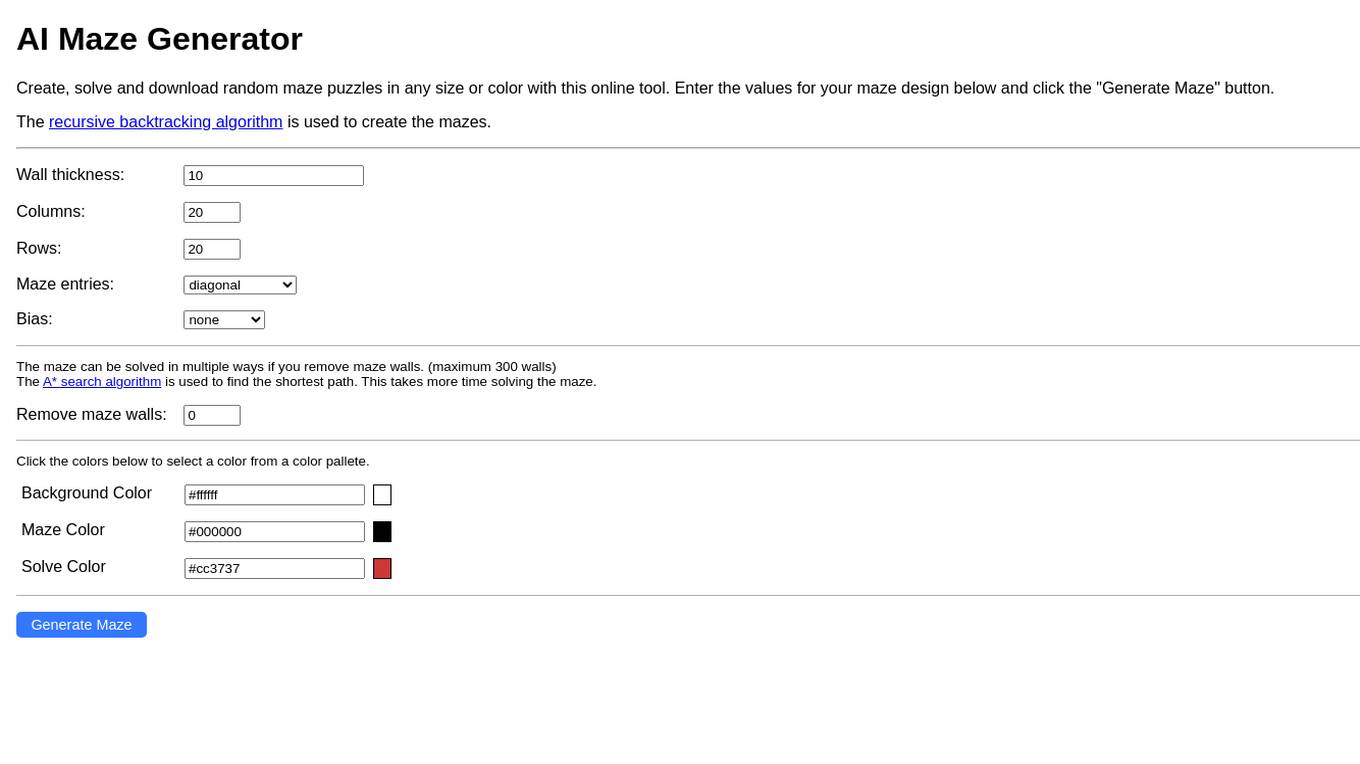
AI Maze Generator
The AI Maze Generator is an online tool that allows users to create, solve, and download random maze puzzles in various sizes and colors. It utilizes the recursive backtracking algorithm to design mazes and the A* search algorithm to find the shortest path. Users can customize maze specifications like wall thickness, columns, rows, maze entries, and bias. The tool offers a user-friendly interface for maze creation and solving, providing a fun and engaging experience for maze enthusiasts.

BugFree.ai
BugFree.ai is an AI-powered platform designed to help users practice system design and behavior interviews, similar to Leetcode. The platform offers a range of features to assist users in preparing for technical interviews, including mock interviews, real-time feedback, and personalized study plans. With BugFree.ai, users can improve their problem-solving skills and gain confidence in tackling complex interview questions.
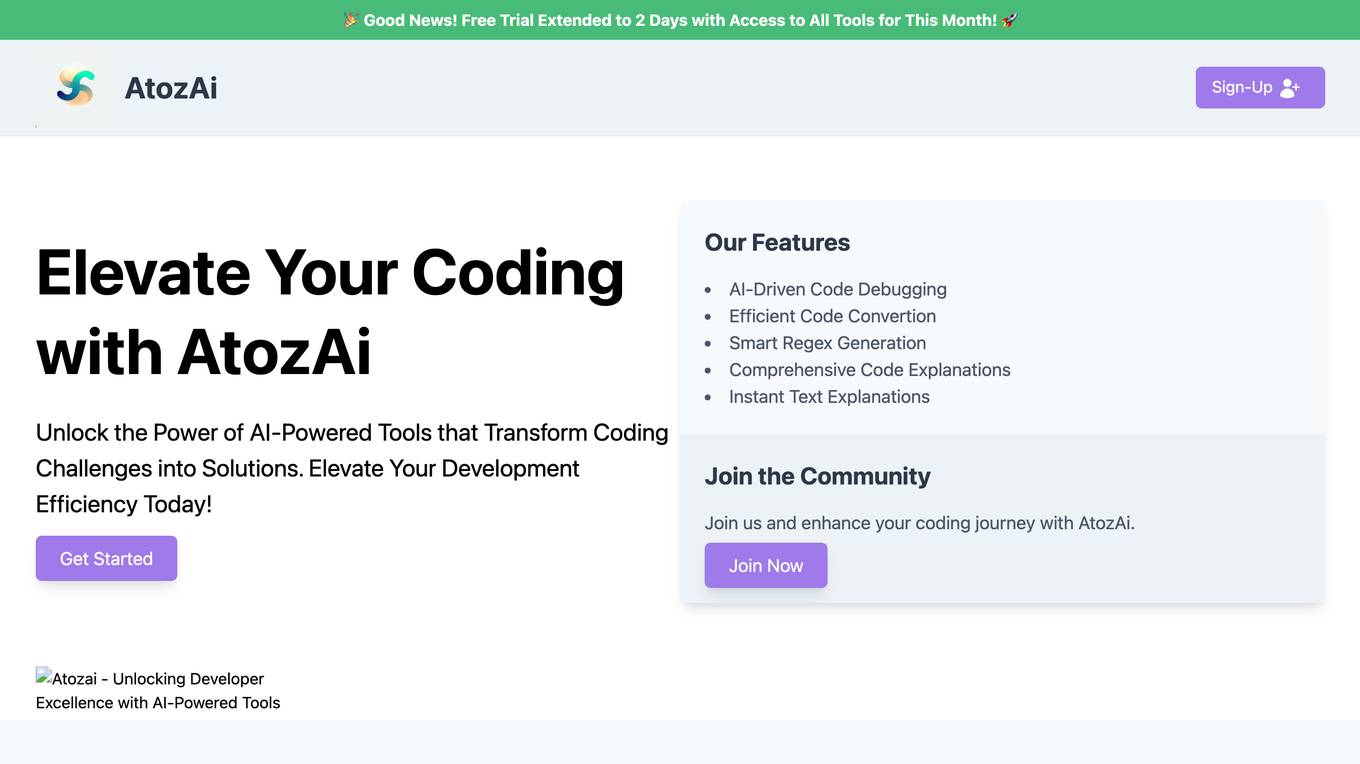
AtozAi
AtozAi is an AI application designed to empower developers by providing AI-powered tools that enhance coding efficiency and productivity. The platform offers features such as AI-driven code debugging, efficient code conversion, smart regex generation, comprehensive code explanations, and instant text explanations. AtozAi aims to cover a wide range of coding tasks with specialized AI algorithms, continually expanding its toolkit to make tasks easier, more efficient, and creative for developers.
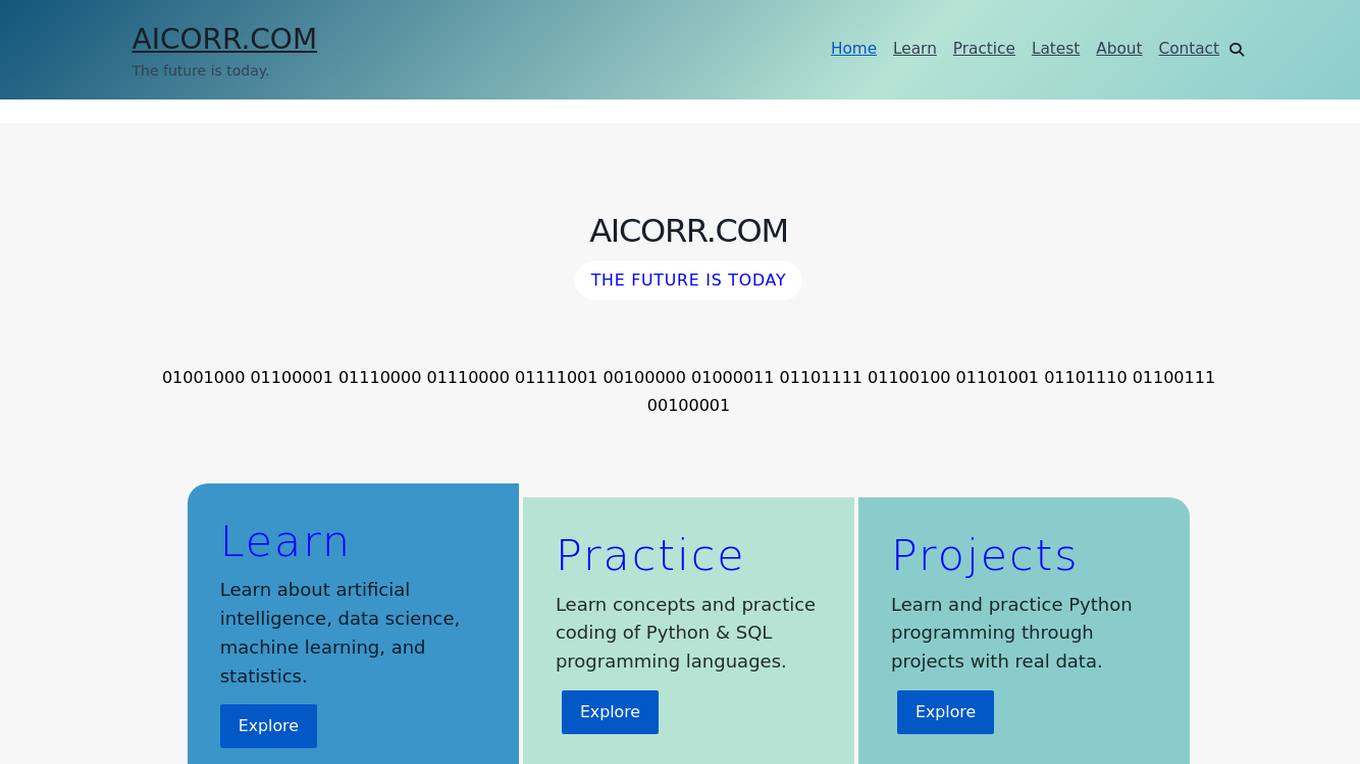
AICorr.com
AICorr.com is a website offering free coding tutorials with a focus on artificial intelligence, data science, machine learning, and statistics. Users can learn and practice coding in Python and SQL, explore projects with real data, and access a wealth of information in an easy-to-understand format. The website aims to provide up-to-date and relevant information to a global audience, ensuring a seamless learning experience for all.

DataCamp
DataCamp is an online learning platform that offers courses in data science, AI, and machine learning. The platform provides interactive exercises, short videos, and hands-on projects to help learners develop the skills they need to succeed in the field. DataCamp also offers a variety of resources for businesses, including team training, custom content development, and data science consulting.
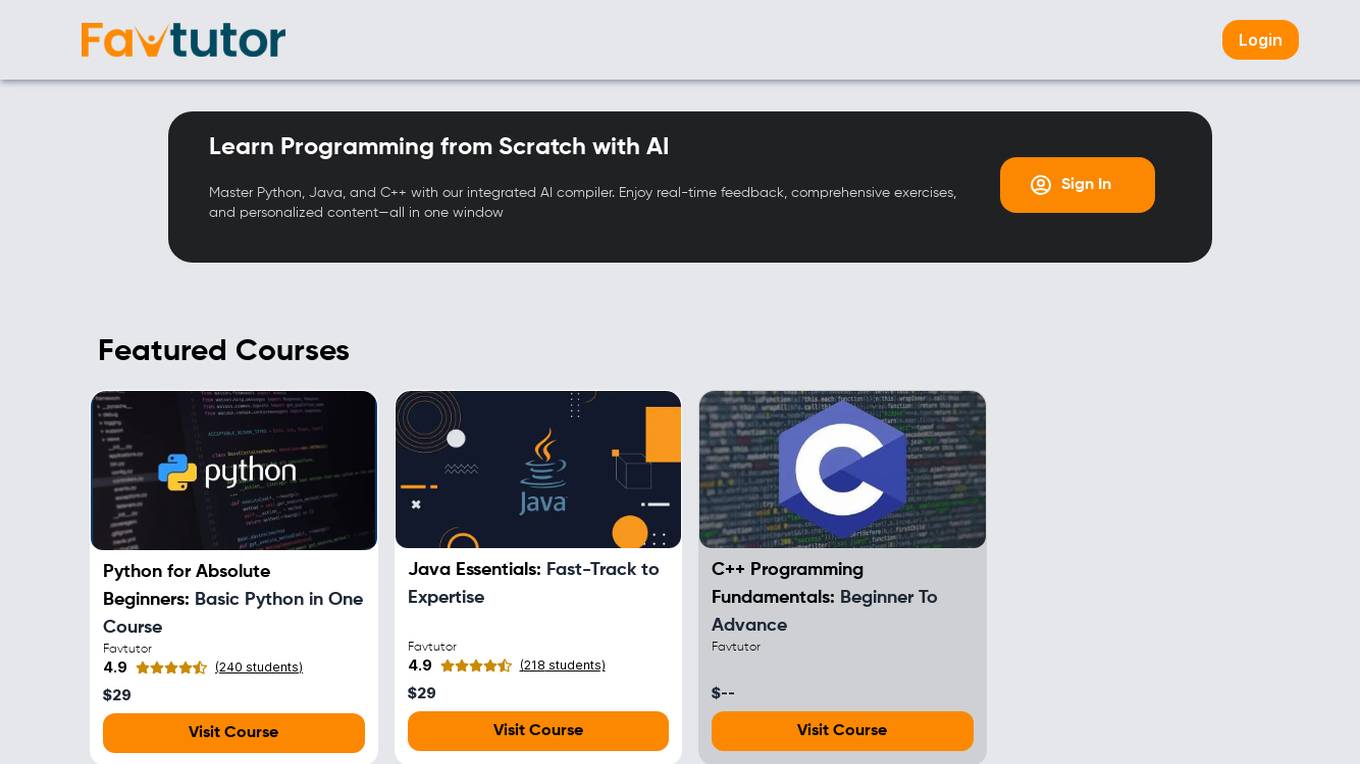
FavTutor AI Learning
FavTutor AI Learning is an AI-powered tool designed to help users master programming skills through personalized learning experiences. The tool utilizes artificial intelligence algorithms to provide tailored lessons, practice exercises, and feedback to enhance the user's programming proficiency. With FavTutor AI Learning, users can improve their coding abilities at their own pace and convenience, making it an ideal platform for both beginners and experienced programmers seeking to enhance their skills.
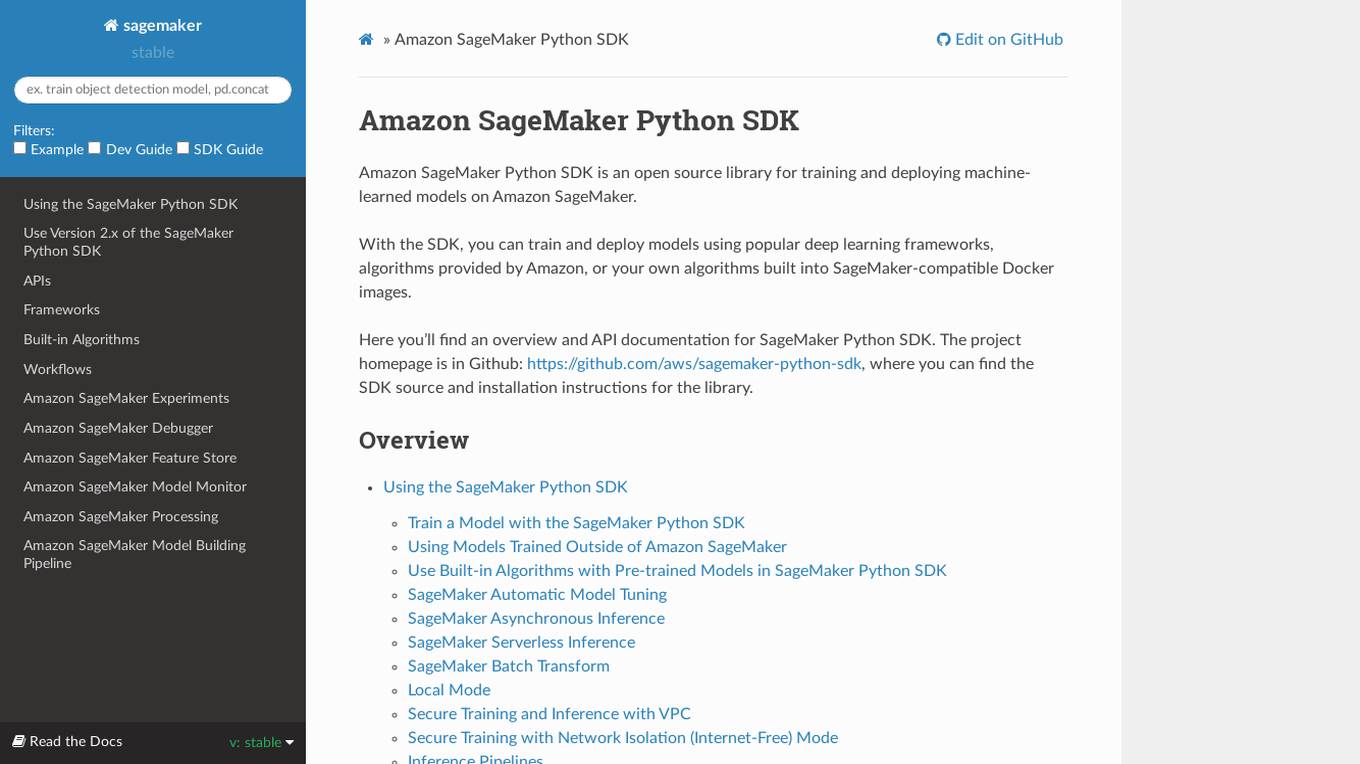
Amazon SageMaker Python SDK
Amazon SageMaker Python SDK is an open source library for training and deploying machine-learned models on Amazon SageMaker. With the SDK, you can train and deploy models using popular deep learning frameworks, algorithms provided by Amazon, or your own algorithms built into SageMaker-compatible Docker images.
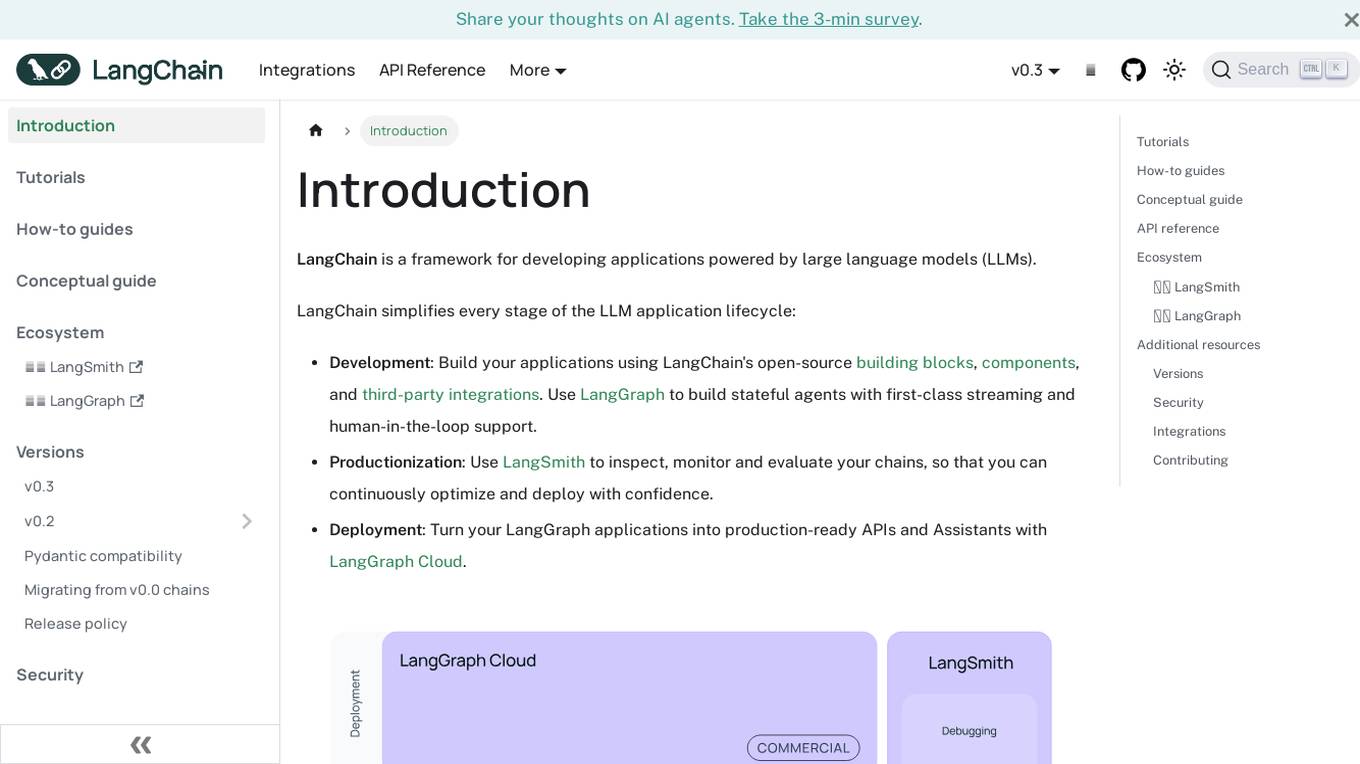
LangChain
LangChain is a framework for developing applications powered by large language models (LLMs). It simplifies every stage of the LLM application lifecycle, including development, productionization, and deployment. LangChain consists of open-source libraries such as langchain-core, langchain-community, and partner packages. It also includes LangGraph for building stateful agents and LangSmith for debugging and monitoring LLM applications.
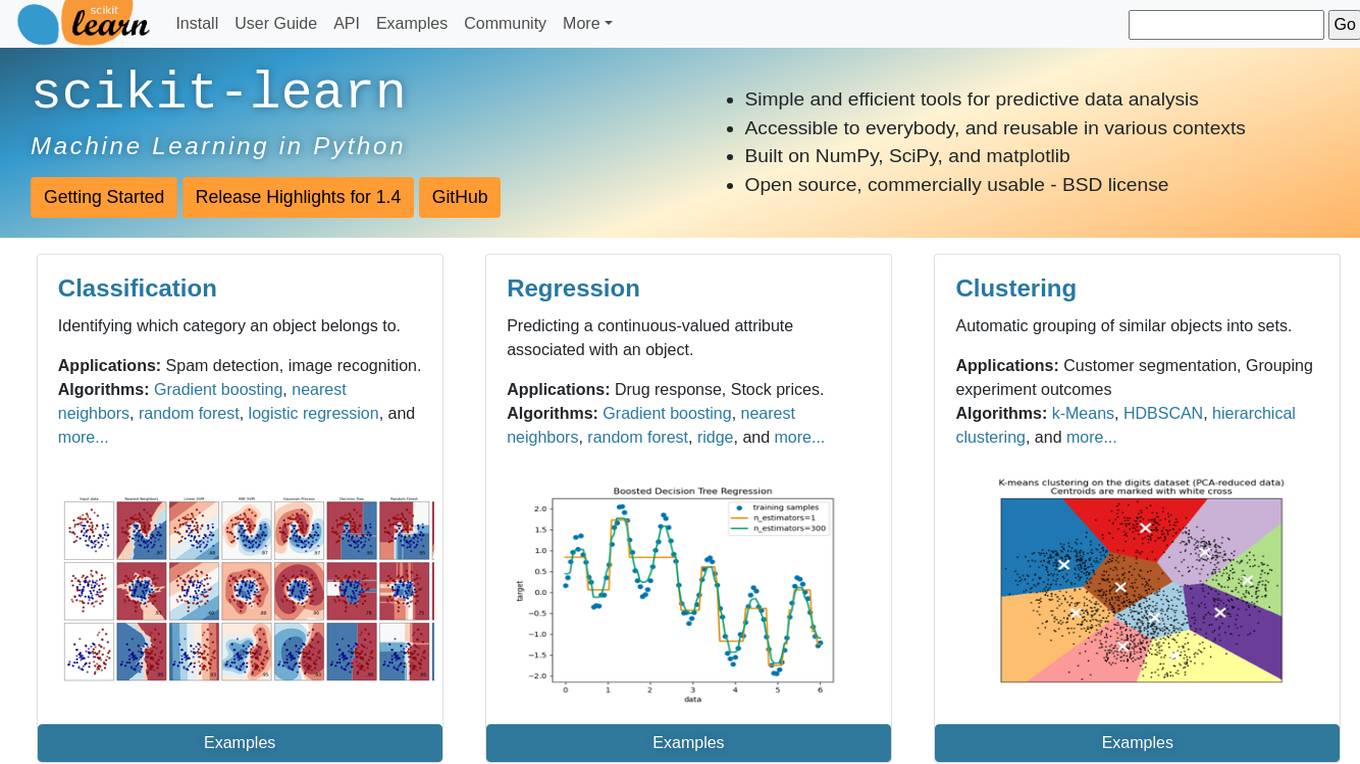
scikit-learn
Scikit-learn is a free software machine learning library for the Python programming language. It features various classification, regression and clustering algorithms including support vector machines, random forests, gradient boosting, k-means and DBSCAN, and is designed to interoperate with the Python numerical and scientific libraries NumPy and SciPy.
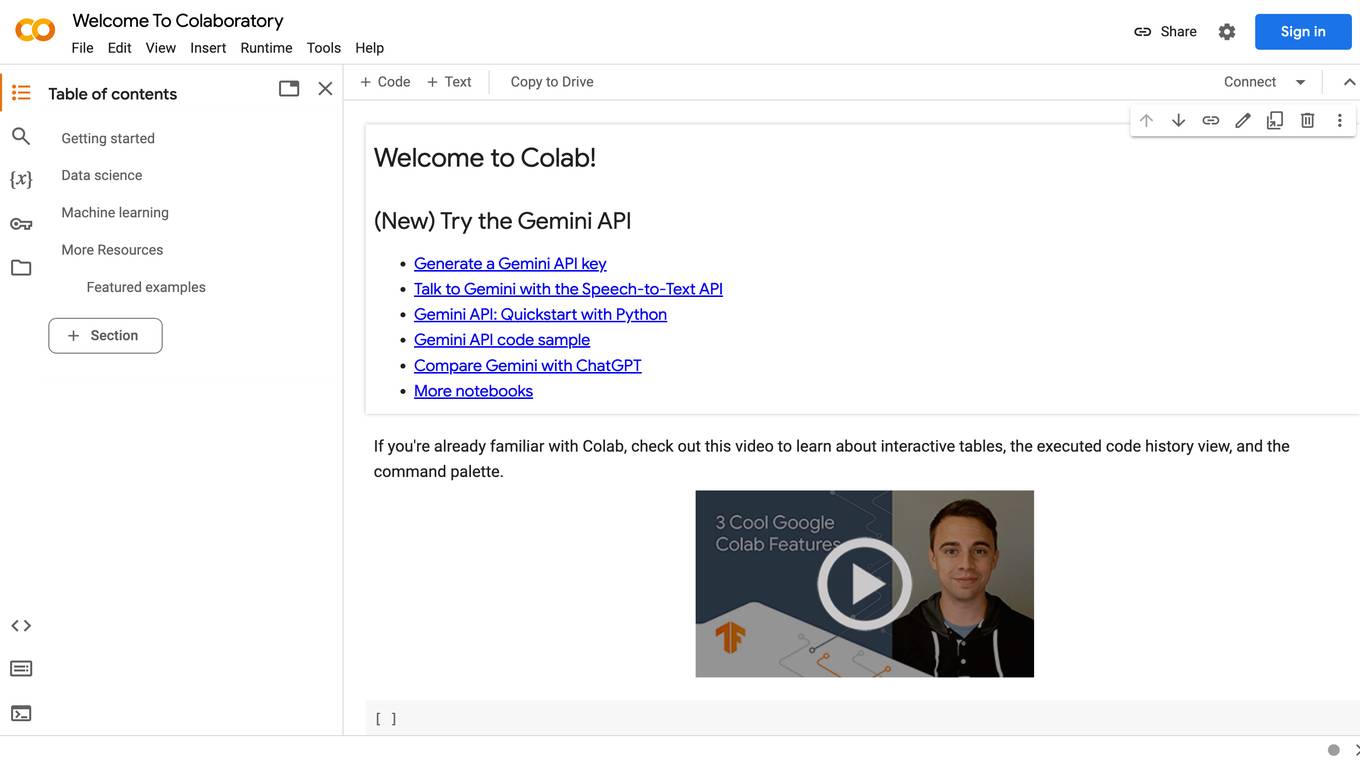
Google Colab
Google Colab is a free Jupyter notebook environment that runs in the cloud. It allows you to write and execute Python code without having to install any software or set up a local environment. Colab notebooks are shareable, so you can easily collaborate with others on projects.
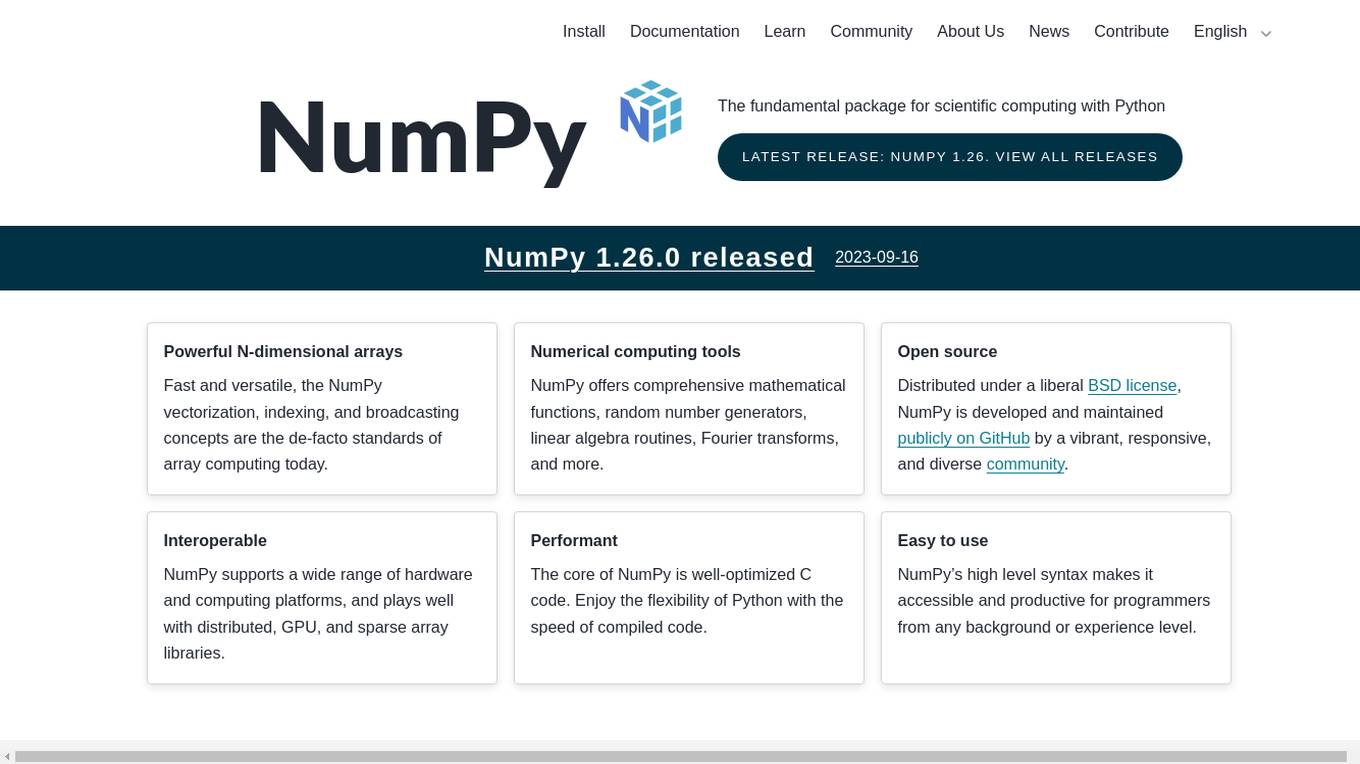
NumPy
NumPy is a library for the Python programming language, adding support for large, multi-dimensional arrays and high-level mathematical functions to perform operations on these arrays. It is the fundamental package for scientific computing with Python and is used in a wide range of applications, including data science, machine learning, and image processing. NumPy is open source and distributed under a liberal BSD license, and is developed and maintained publicly on GitHub by a vibrant, responsive, and diverse community.
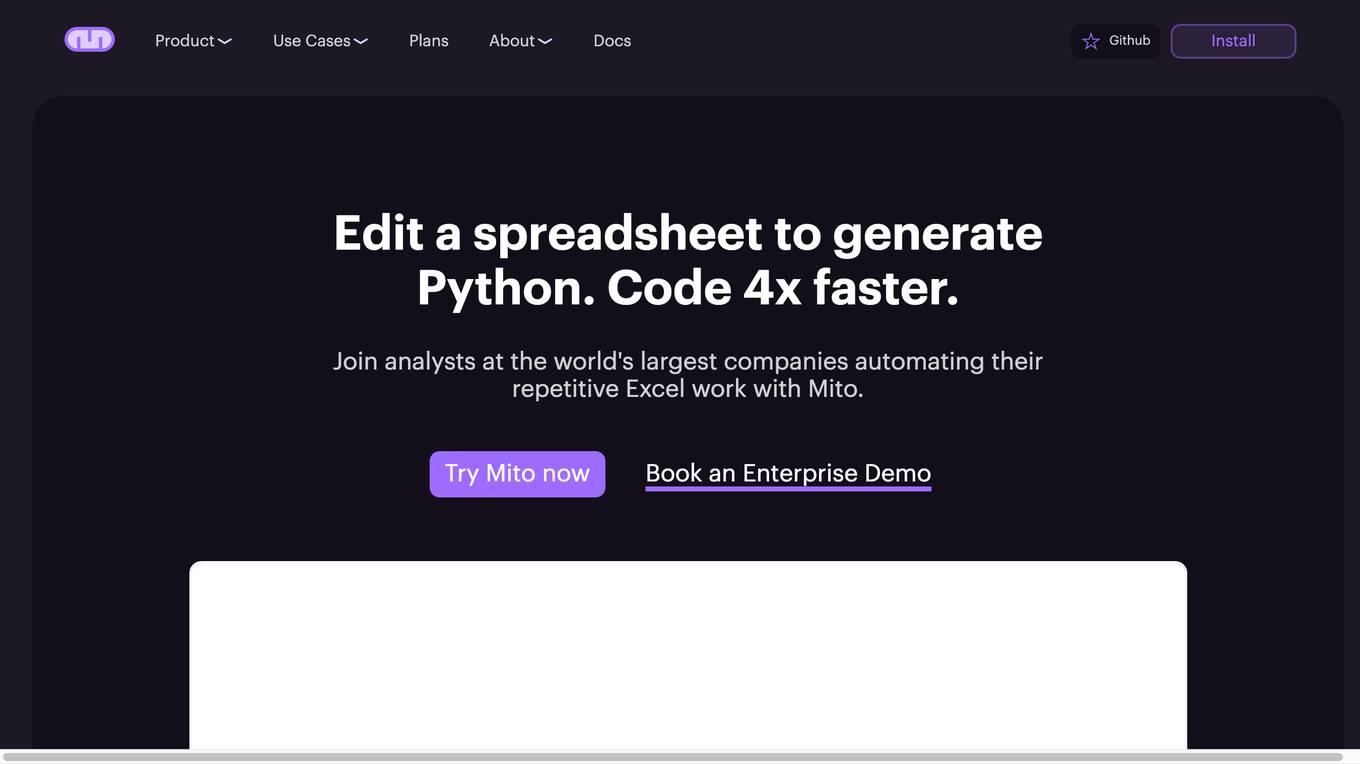
Mito
Mito is a low-code data app infrastructure that allows users to edit spreadsheets and automatically generate Python code. It is designed to help analysts automate their repetitive Excel work and take automation into their own hands. Mito is a Jupyter extension and Streamlit component, so users don't need to set up any new infrastructure. It is easy to get started with Mito, simply install it using pip and start using it in Jupyter or Streamlit.

NLTK
NLTK (Natural Language Toolkit) is a leading platform for building Python programs to work with human language data. It provides easy-to-use interfaces to over 50 corpora and lexical resources such as WordNet, along with a suite of text processing libraries for classification, tokenization, stemming, tagging, parsing, and semantic reasoning, wrappers for industrial-strength NLP libraries, and an active discussion forum. Thanks to a hands-on guide introducing programming fundamentals alongside topics in computational linguistics, plus comprehensive API documentation, NLTK is suitable for linguists, engineers, students, educators, researchers, and industry users alike.
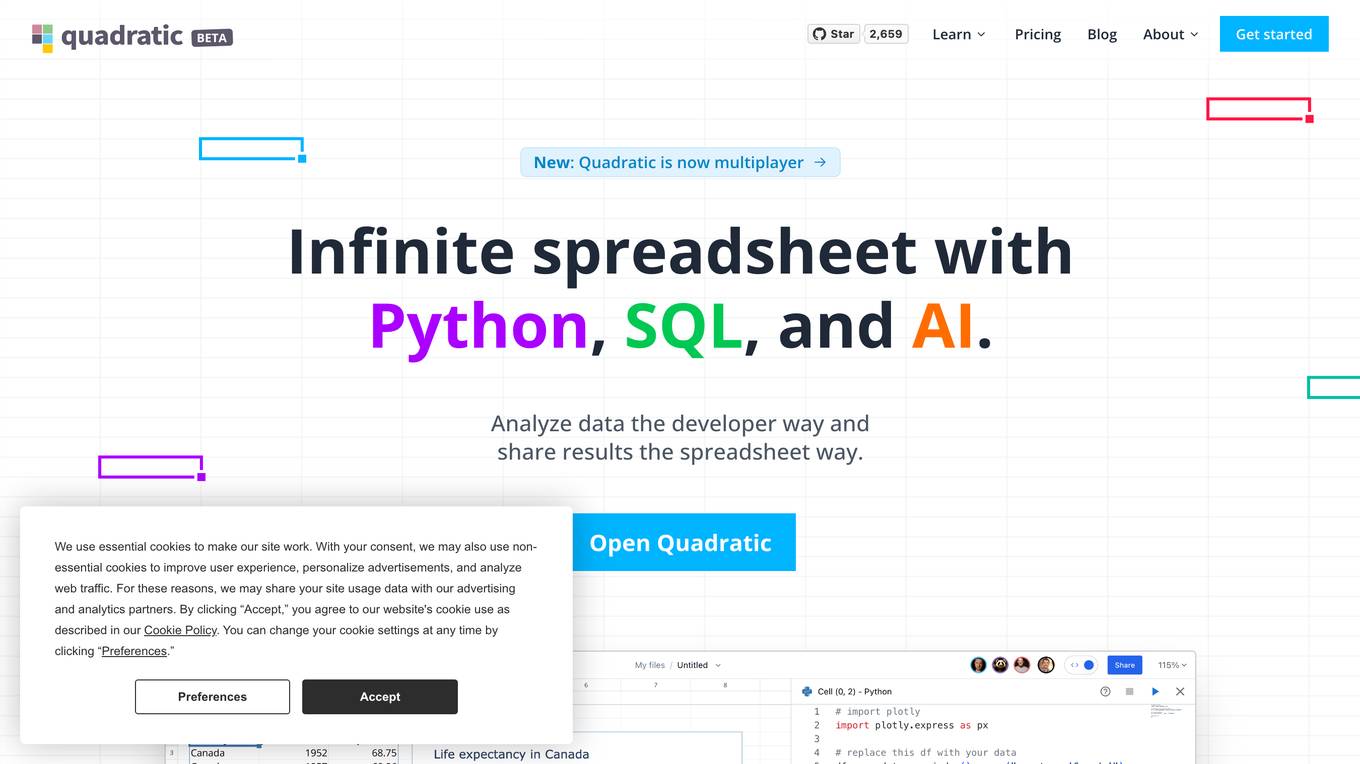
Quadratic
Quadratic is an infinite spreadsheet with Python, SQL, and AI. It combines the familiarity of a spreadsheet with the power of code, allowing users to analyze data, write code, and create visualizations in a single environment. With built-in Python library support, users can bring open source tools directly to their spreadsheets. Quadratic also features real-time collaboration, allowing multiple users to work on the same spreadsheet simultaneously. Additionally, Quadratic is built for speed and performance, utilizing Web Assembly and WebGL to deliver a smooth and responsive experience.
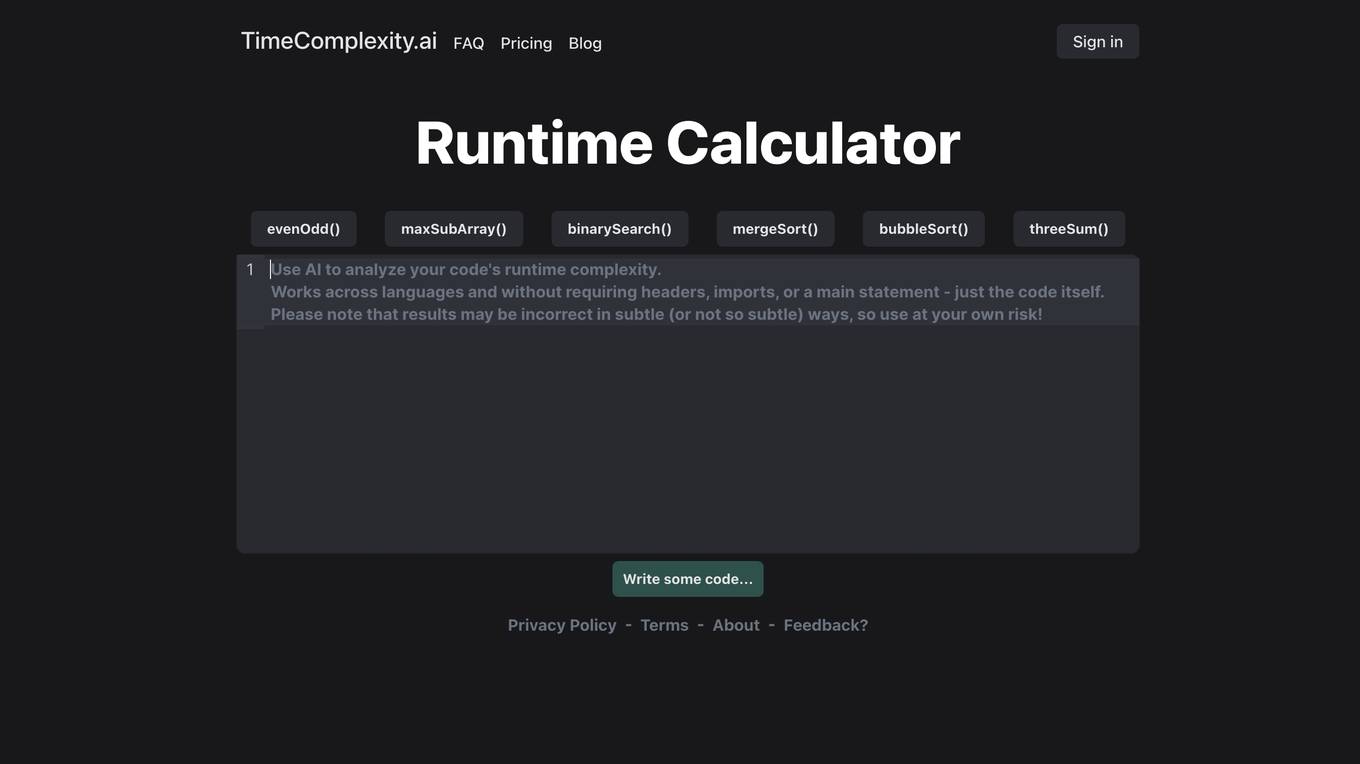
TimeComplexity.ai
TimeComplexity.ai is an AI tool that helps users analyze the runtime complexity of their code. It works seamlessly across different programming languages without the need for headers, imports, or a main statement. Users can input their code and receive insights on its runtime efficiency. However, it's important to note that the results may not always be accurate, so caution is advised when using the tool.
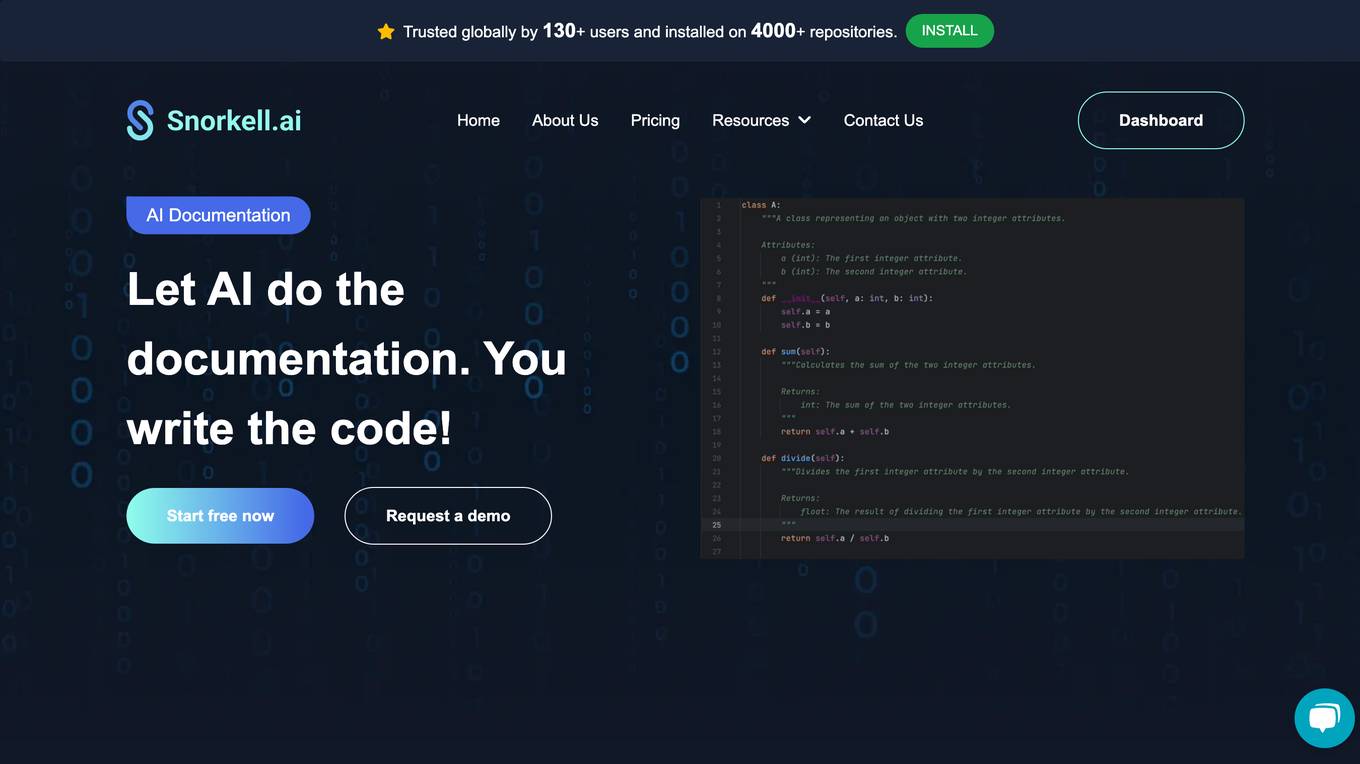
Snorkell.ai
Snorkell.ai is an automated documentation generation tool that uses AI to create and update docstrings for GitHub projects. It supports multiple programming languages, including Python, JavaScript, TypeScript, Java, and Kotlin. Snorkell.ai integrates with GitHub and automatically generates docstrings whenever a pull request is merged, ensuring that documentation is always up-to-date with the codebase. It helps developers save time and effort by automating the documentation process, leading to improved code quality and reduced onboarding time.
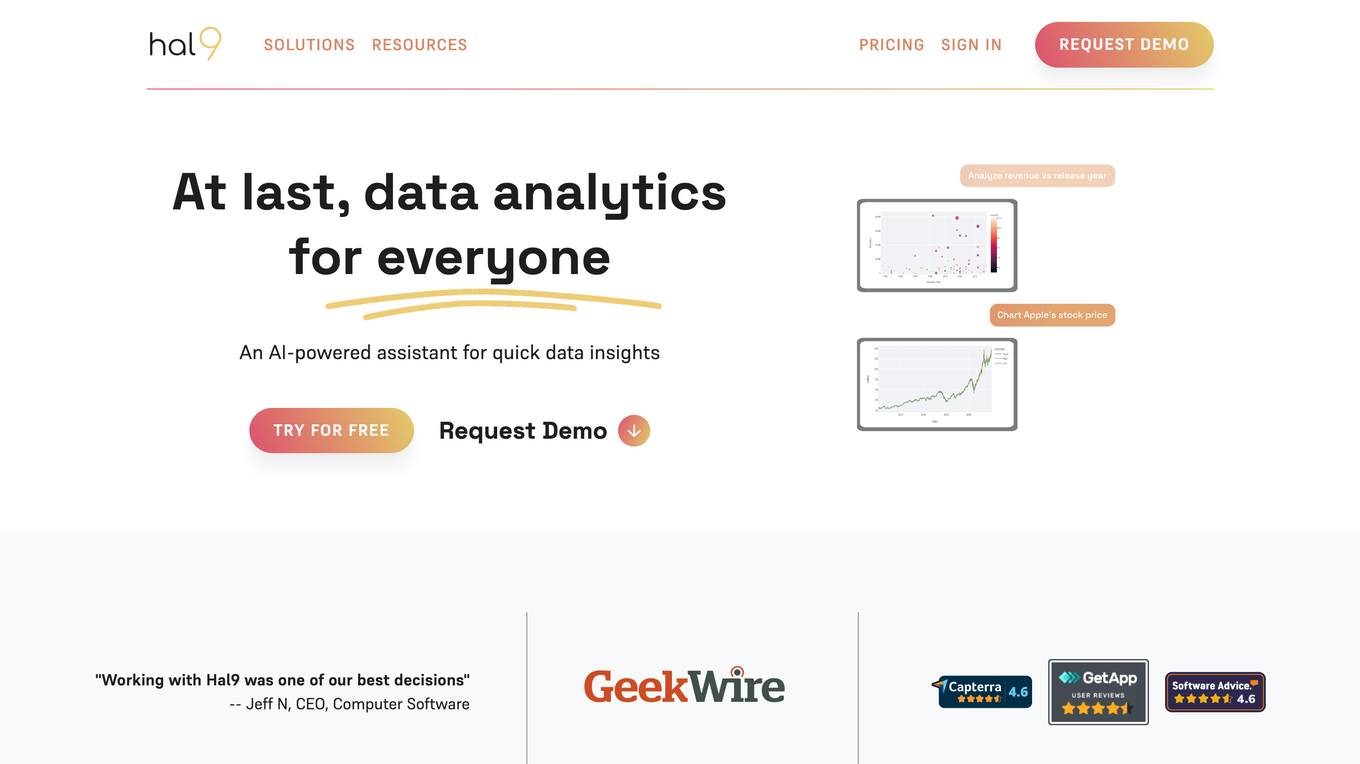
Hal9
Hal9 is an AI coworker creation platform that allows organizations, data teams, and developers to effortlessly build custom AI coworkers with any level of complexity. It provides a secure and customizable model-agnostic AI coworker solution that accelerates the development of AI applications by saving significant engineering time. Hal9 enables users to leverage the best generative AI models, connect their data securely, and start building enterprise-ready AI applications with the necessary engineering components. The platform aims to empower users to leverage AI technology effectively and efficiently in their projects.
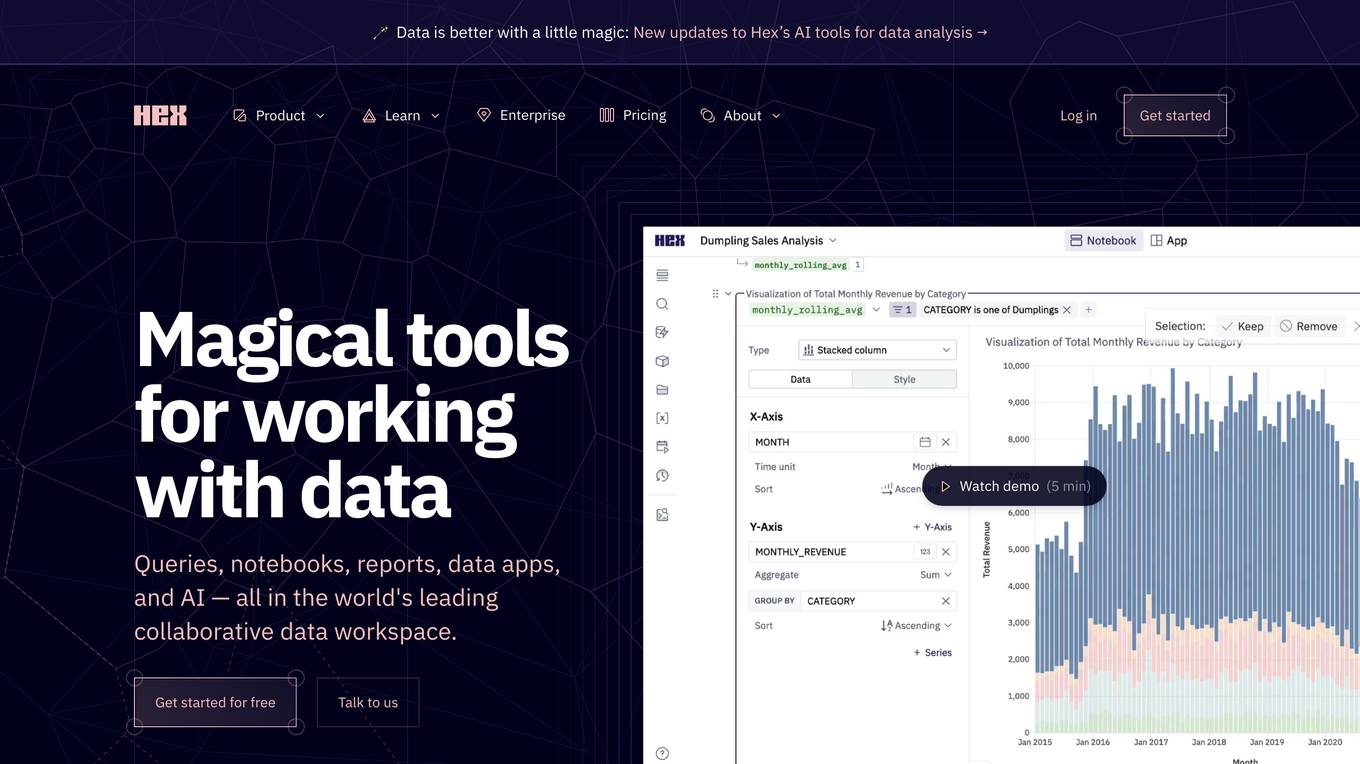
Hex
Hex is a collaborative data workspace that provides a variety of tools for working with data, including queries, notebooks, reports, data apps, and AI. It is designed to be easy to use for people of all technical skill levels, and it integrates with a variety of other tools and services. Hex is a powerful tool for data exploration, analysis, and visualization.
0 - Open Source Tools
20 - OpenAI Gpts
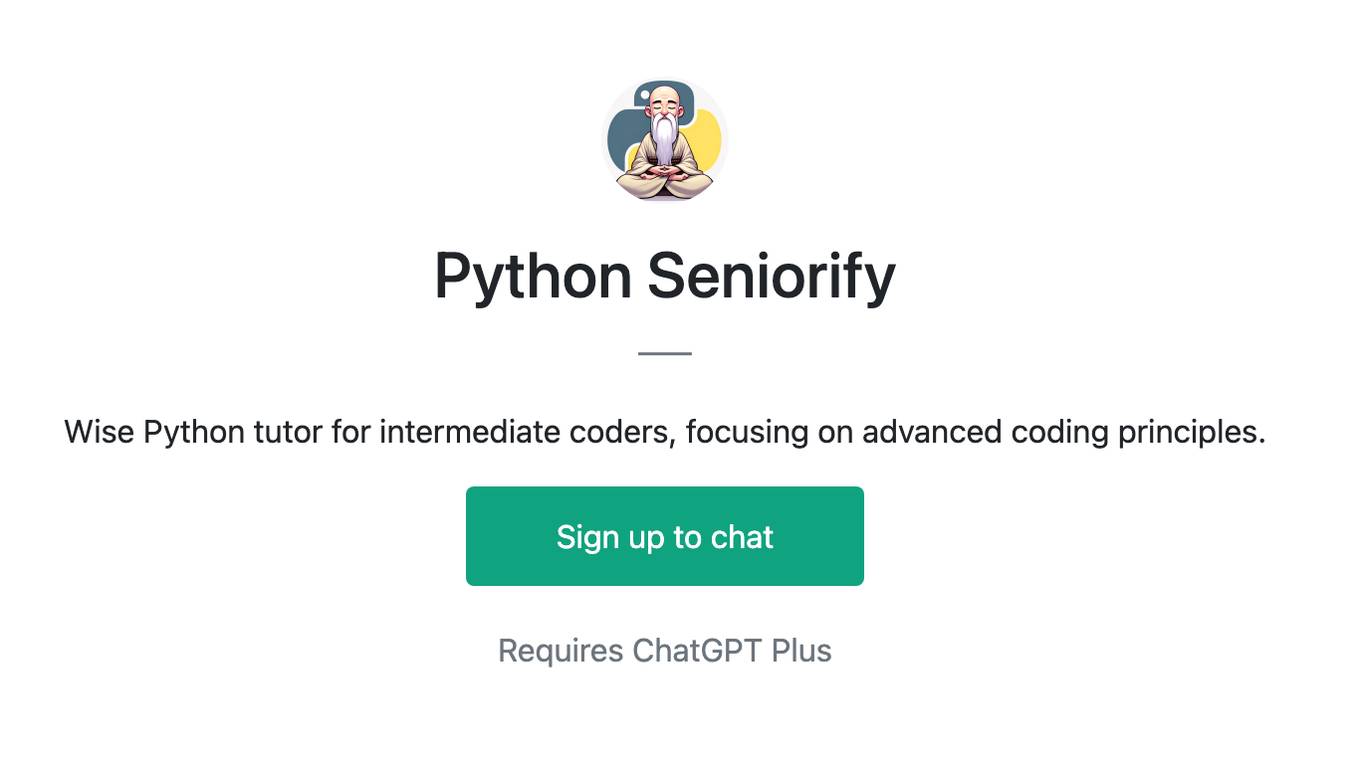
Python Seniorify
Wise Python tutor for intermediate coders, focusing on advanced coding principles.
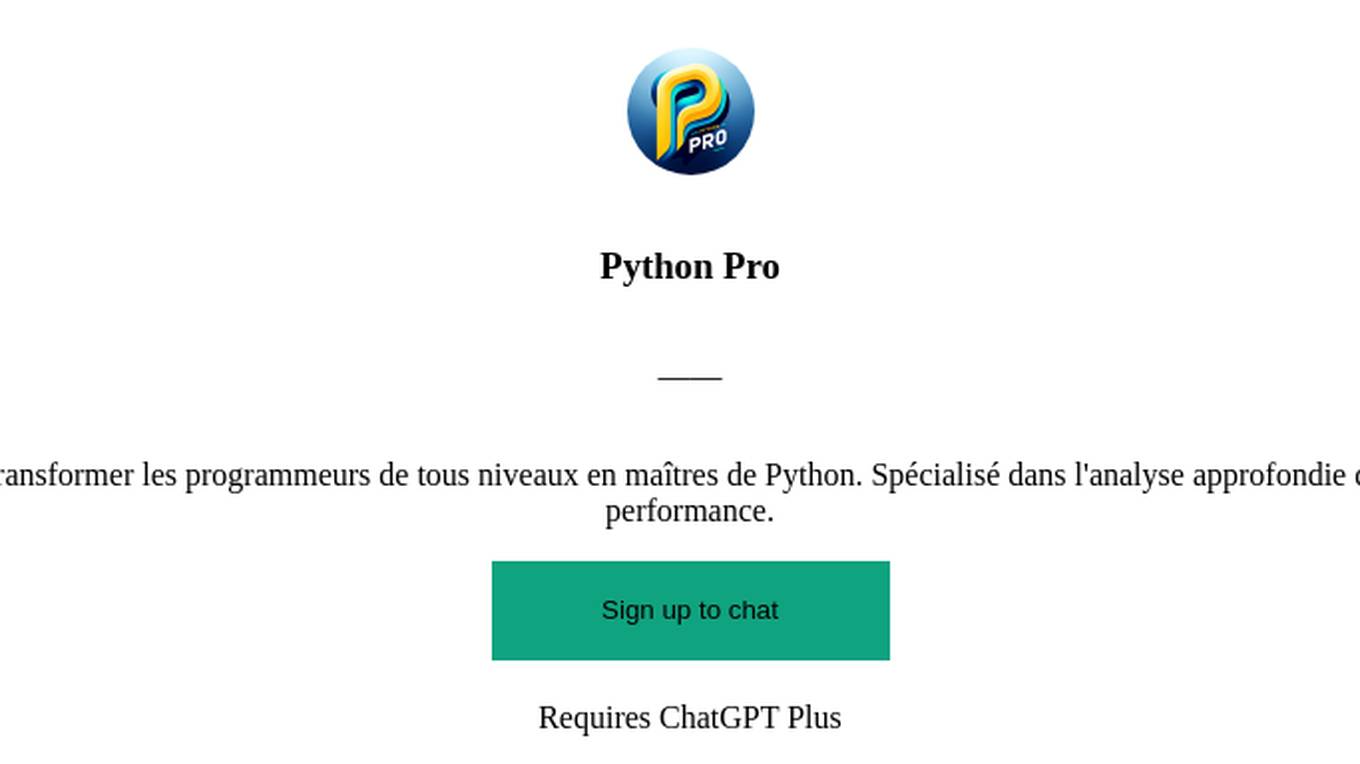
Python Pro
Assistant Python ultra-personnalisé, conçu pour transformer les programmeurs de tous niveaux en maîtres de Python. Spécialisé dans l'analyse approfondie du code, les tutoriels interactifs, et l'optimisation de performance.
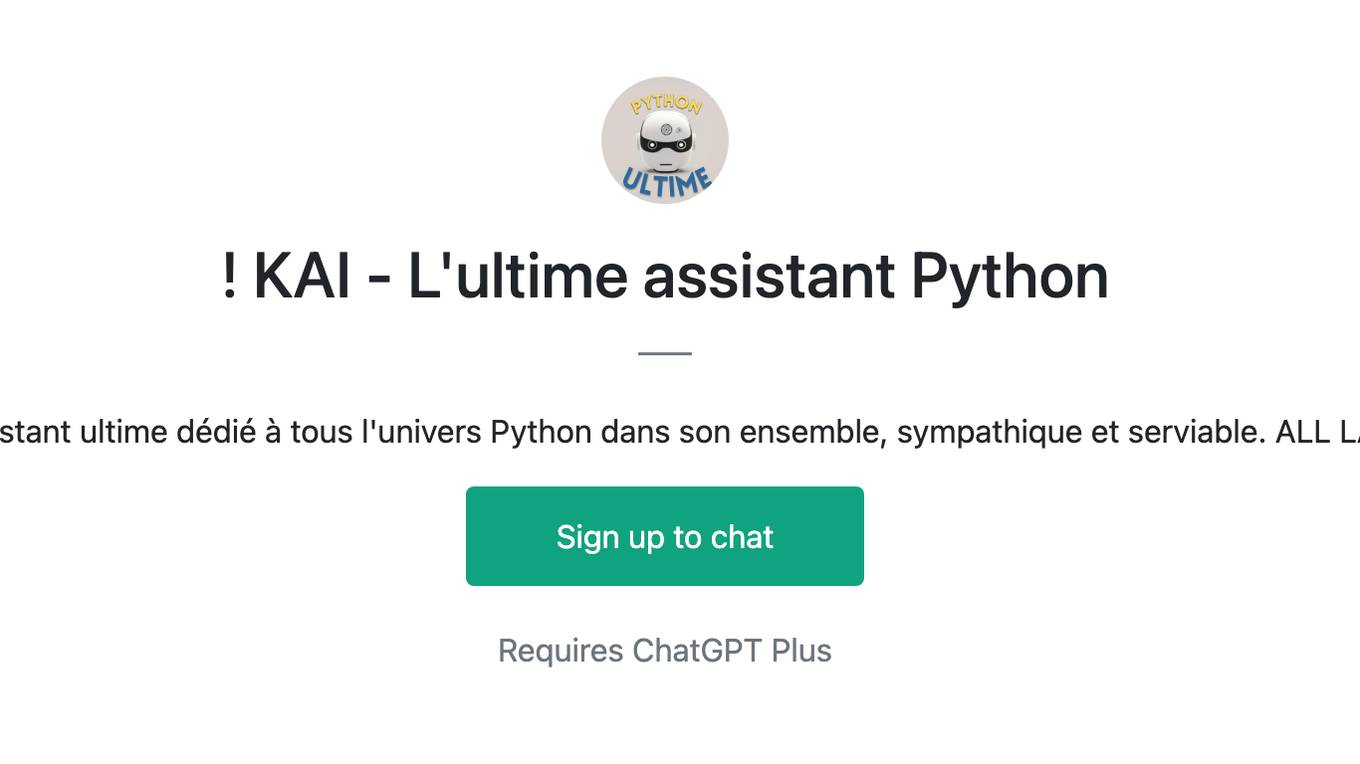
! KAI - L'ultime assistant Python
KAI, votre assistant ultime dédié à tous l'univers Python dans son ensemble, sympathique et serviable. ALL LANGUAGES.
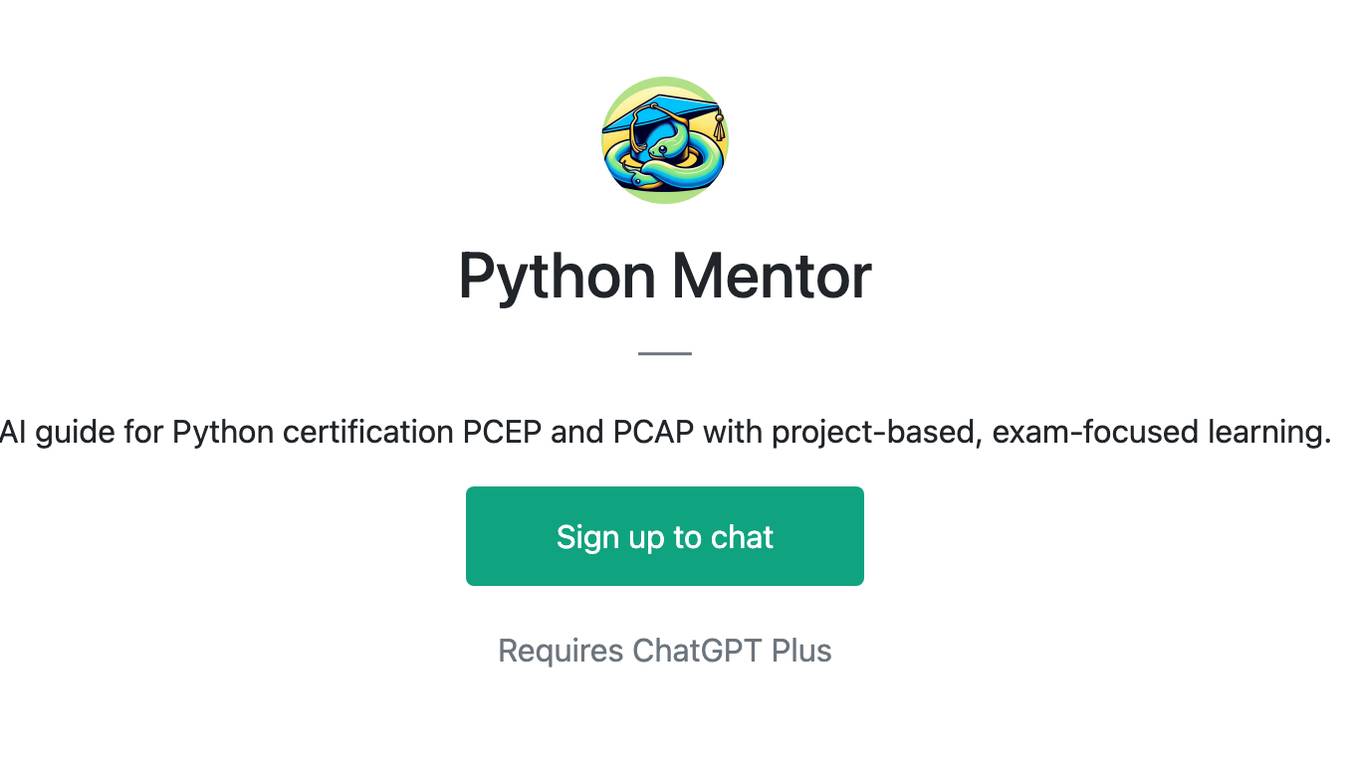
Python Mentor
AI guide for Python certification PCEP and PCAP with project-based, exam-focused learning.
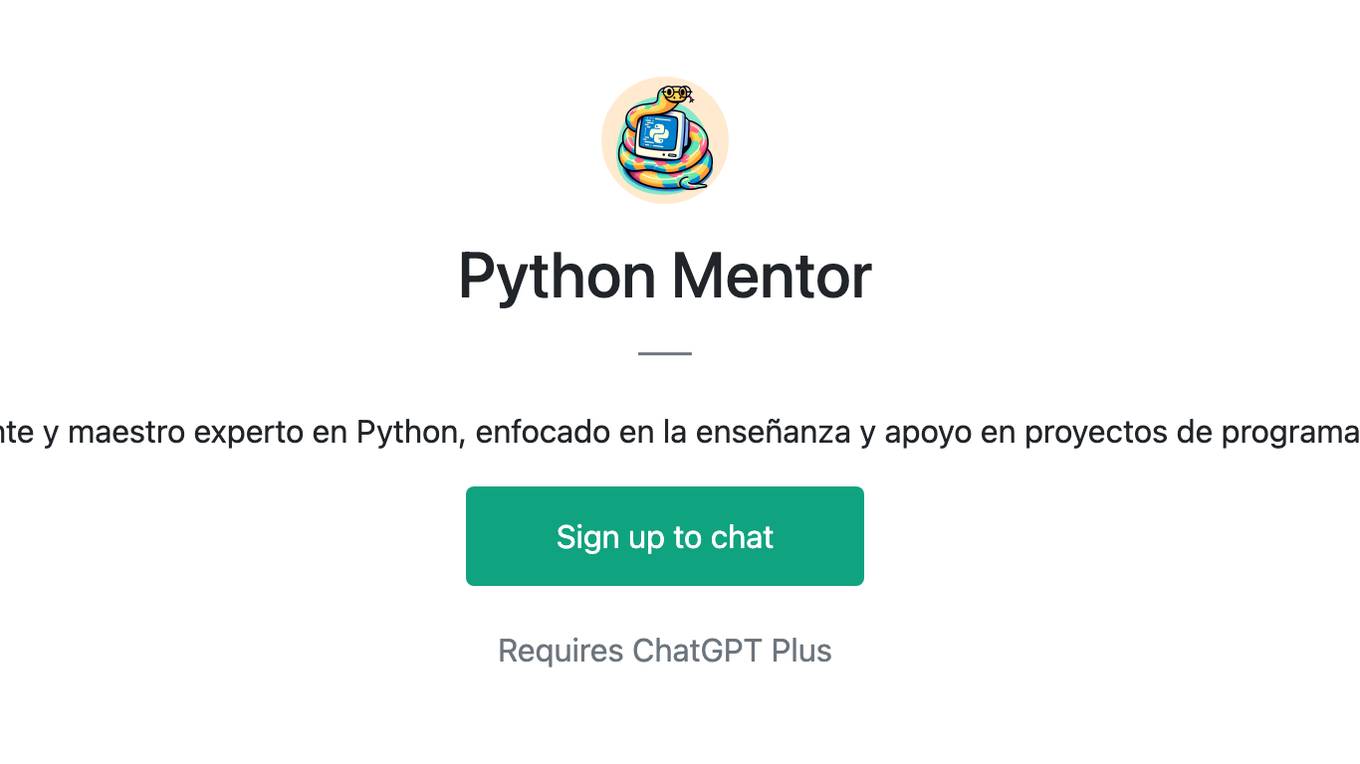
Python Mentor
Asistente y maestro experto en Python, enfocado en la enseñanza y apoyo en proyectos de programación.
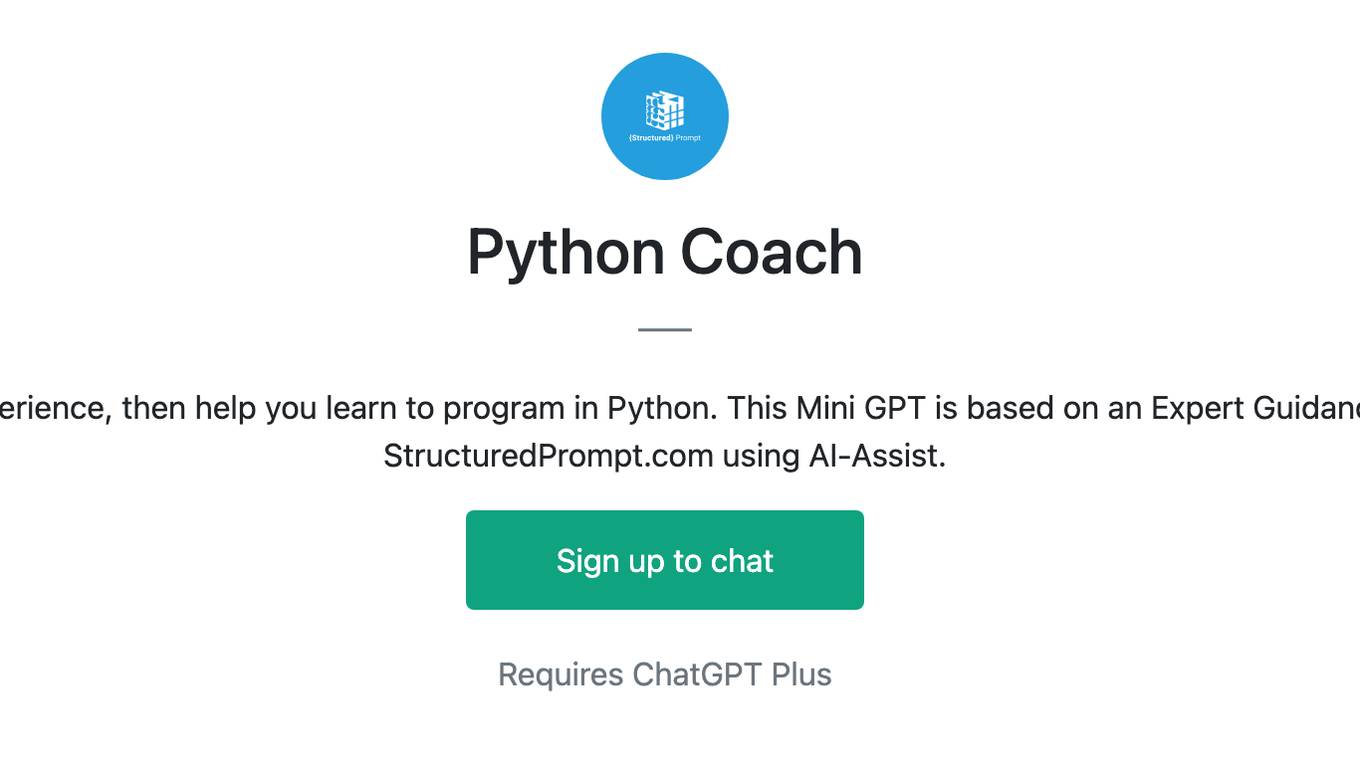
Python Coach
I will start by asking you for your level of experience, then help you learn to program in Python. This Mini GPT is based on an Expert Guidance Prompt created in under 3 minutes with StructuredPrompt.com using AI-Assist.
